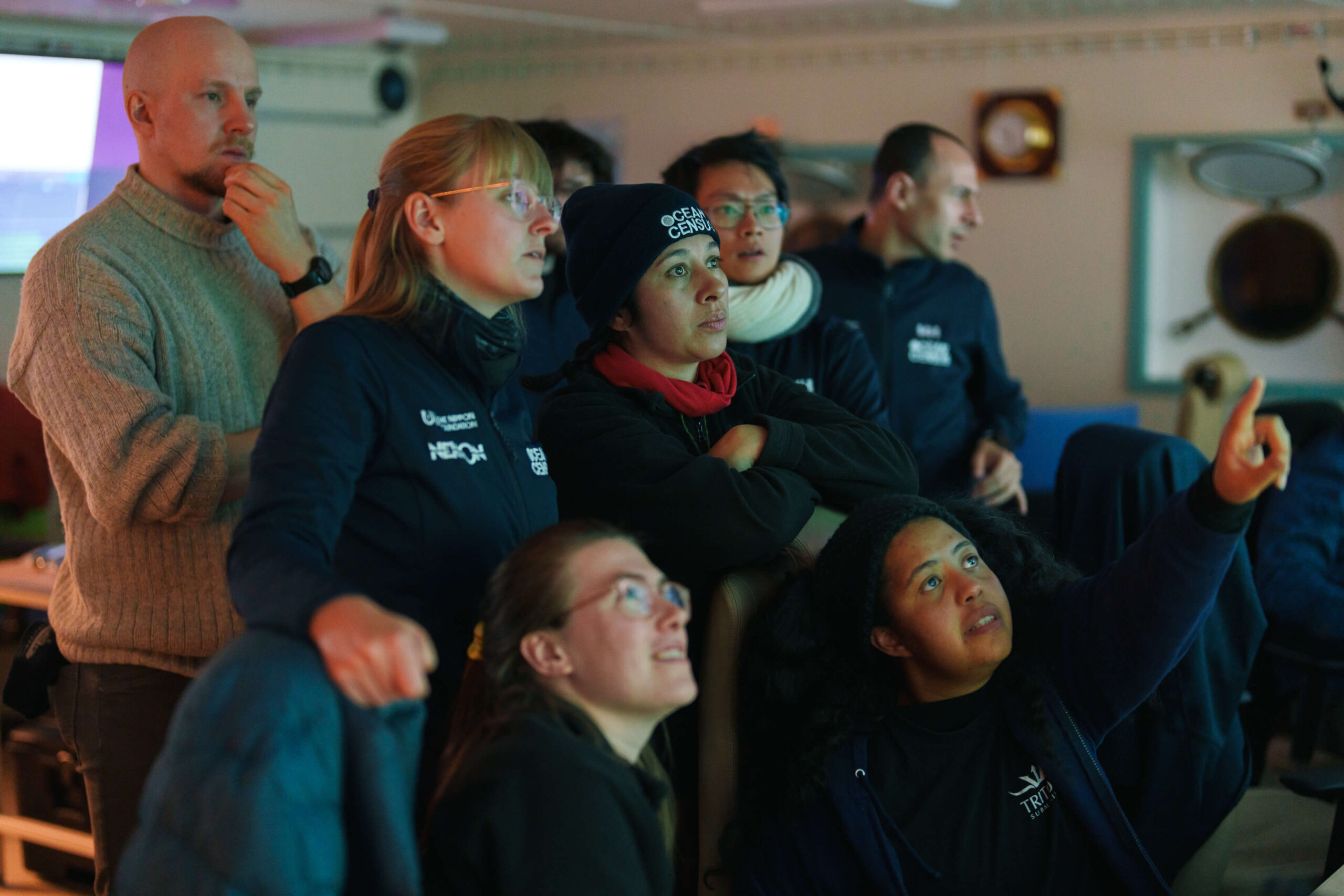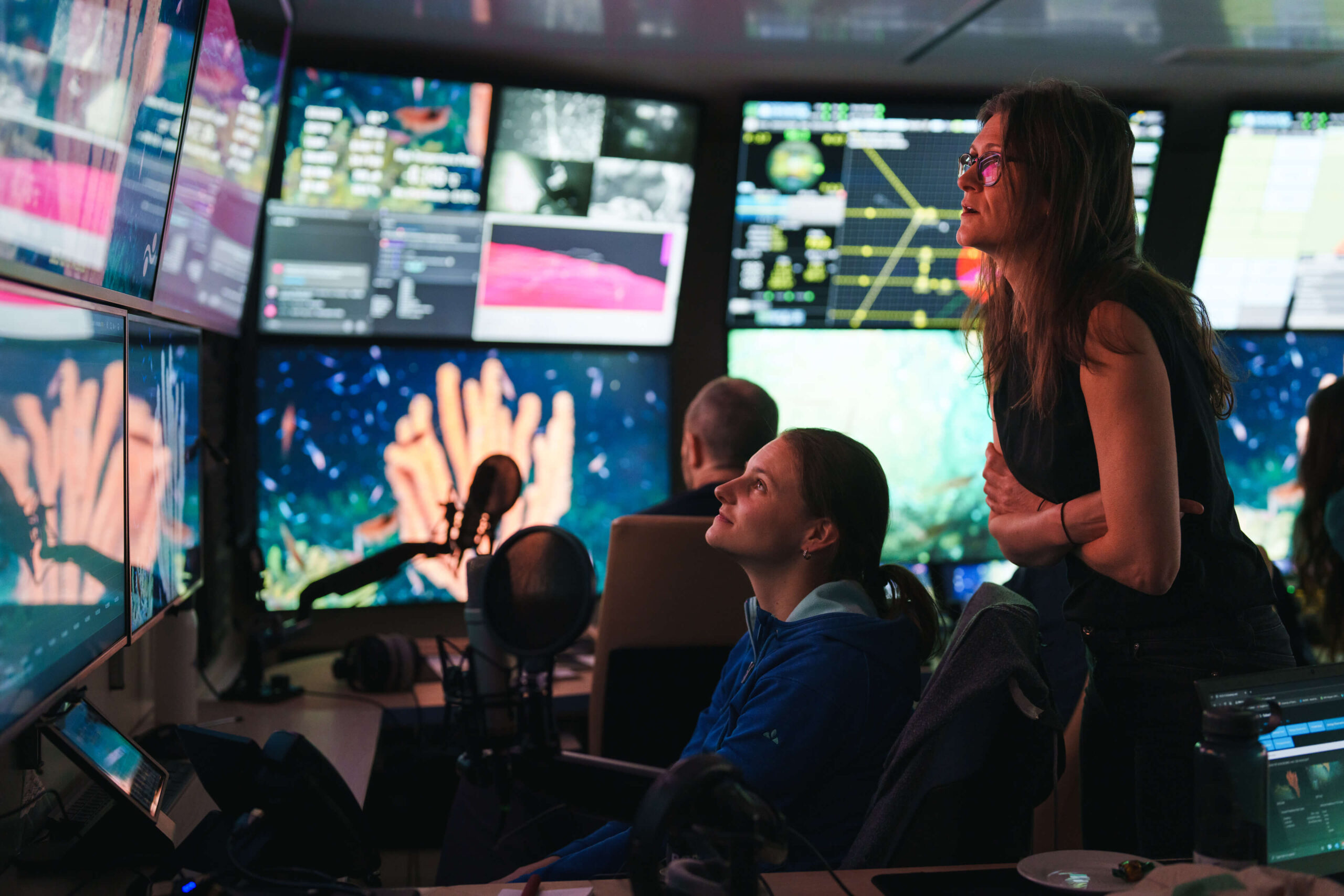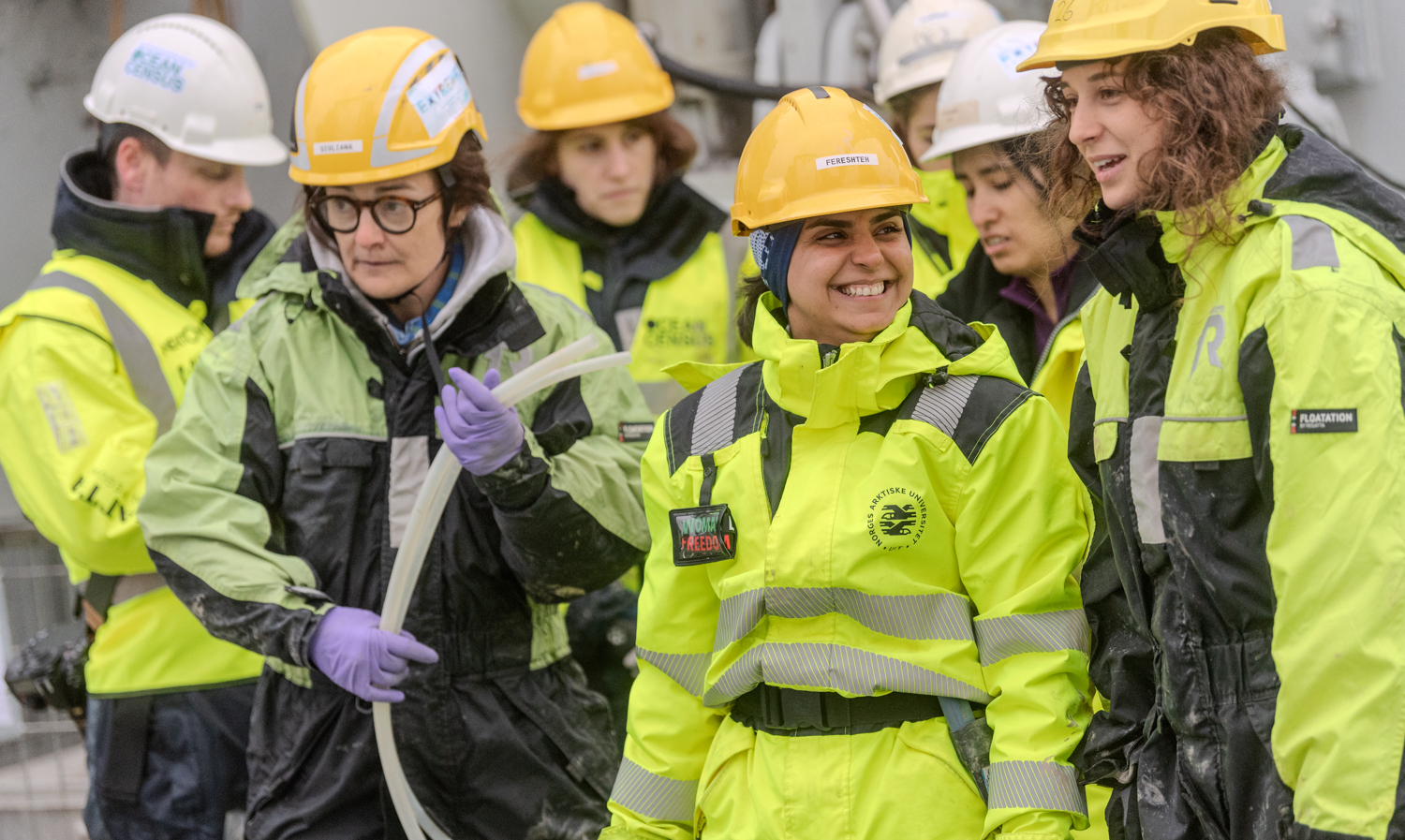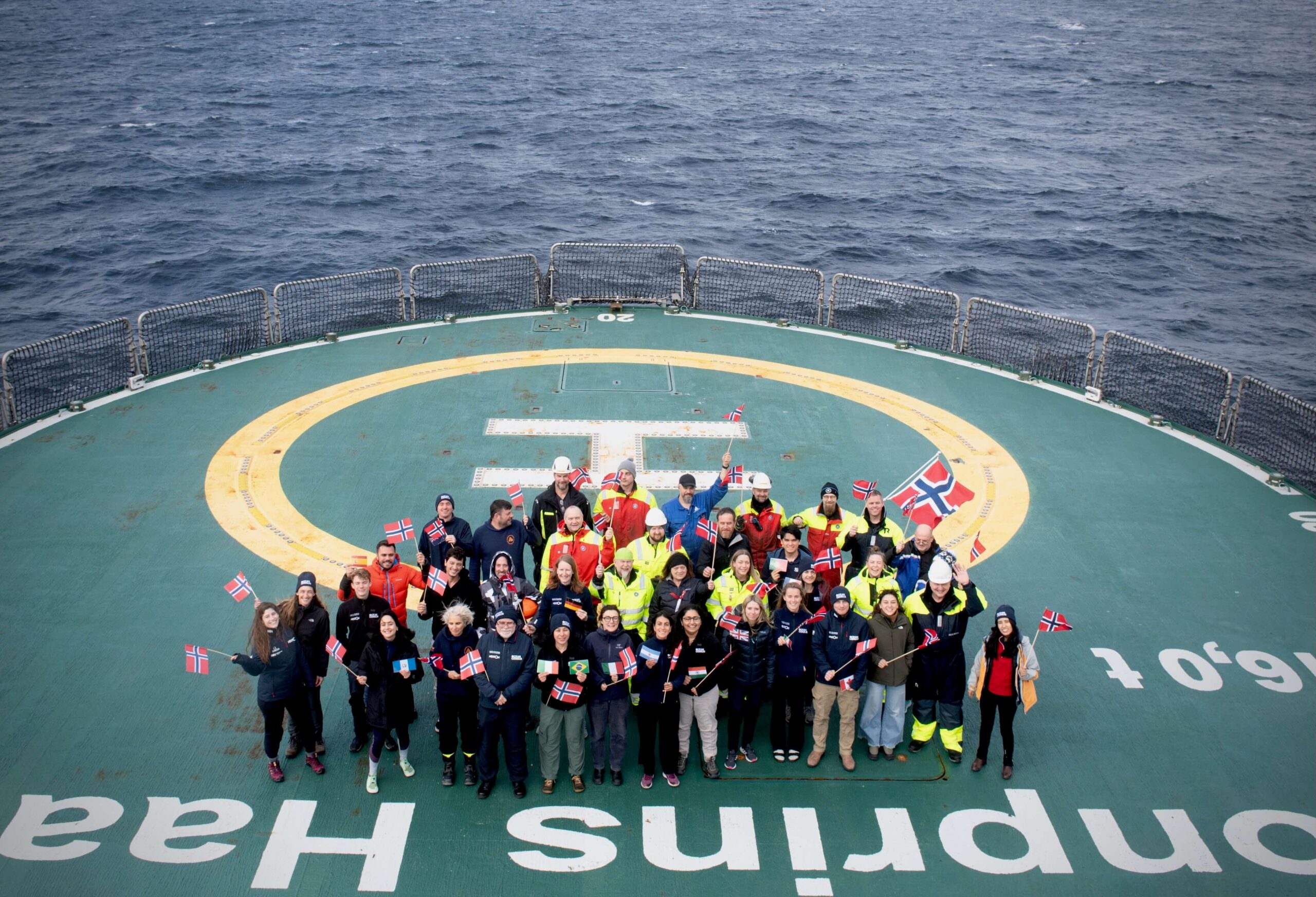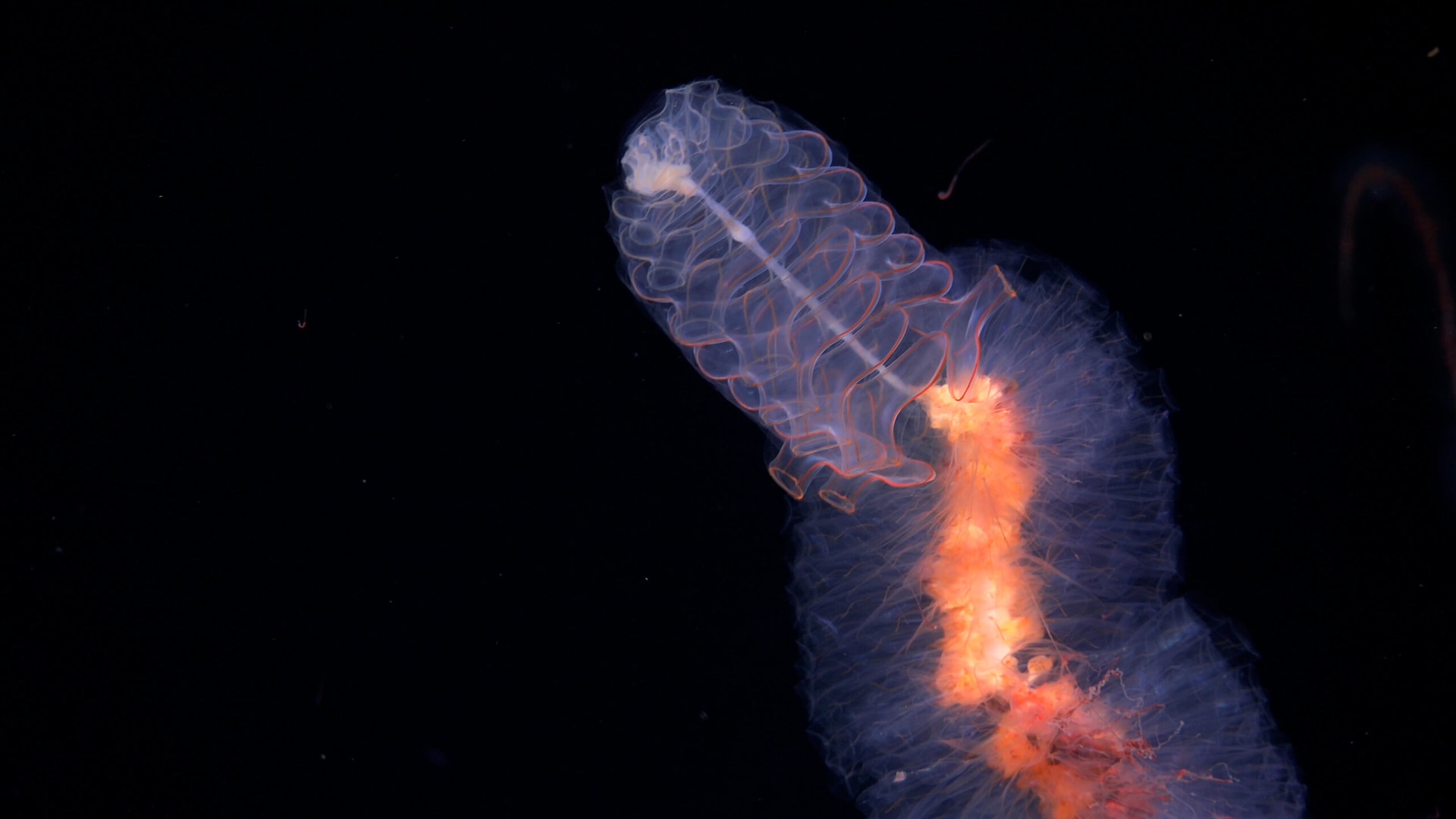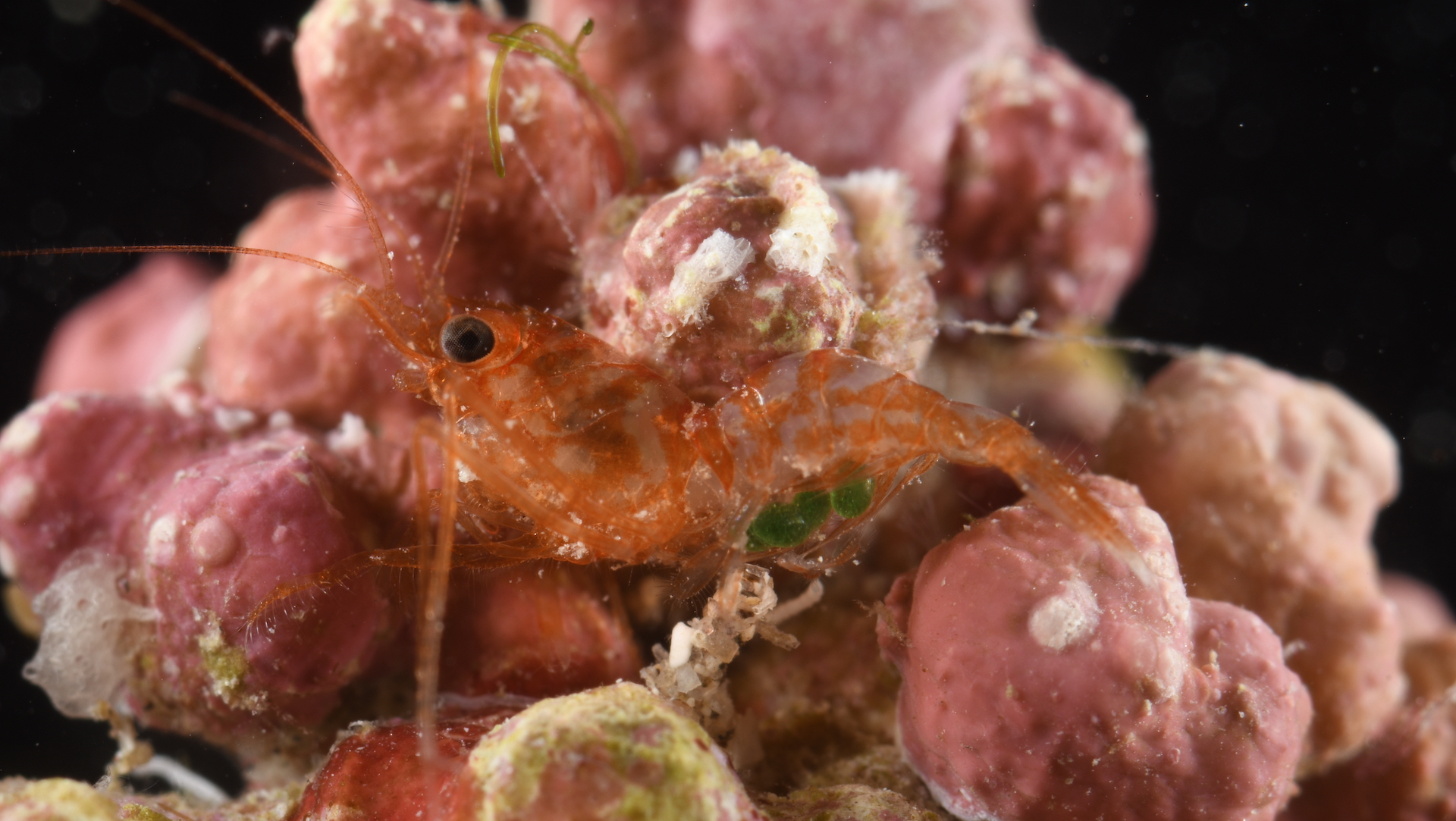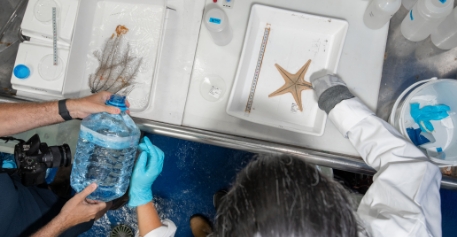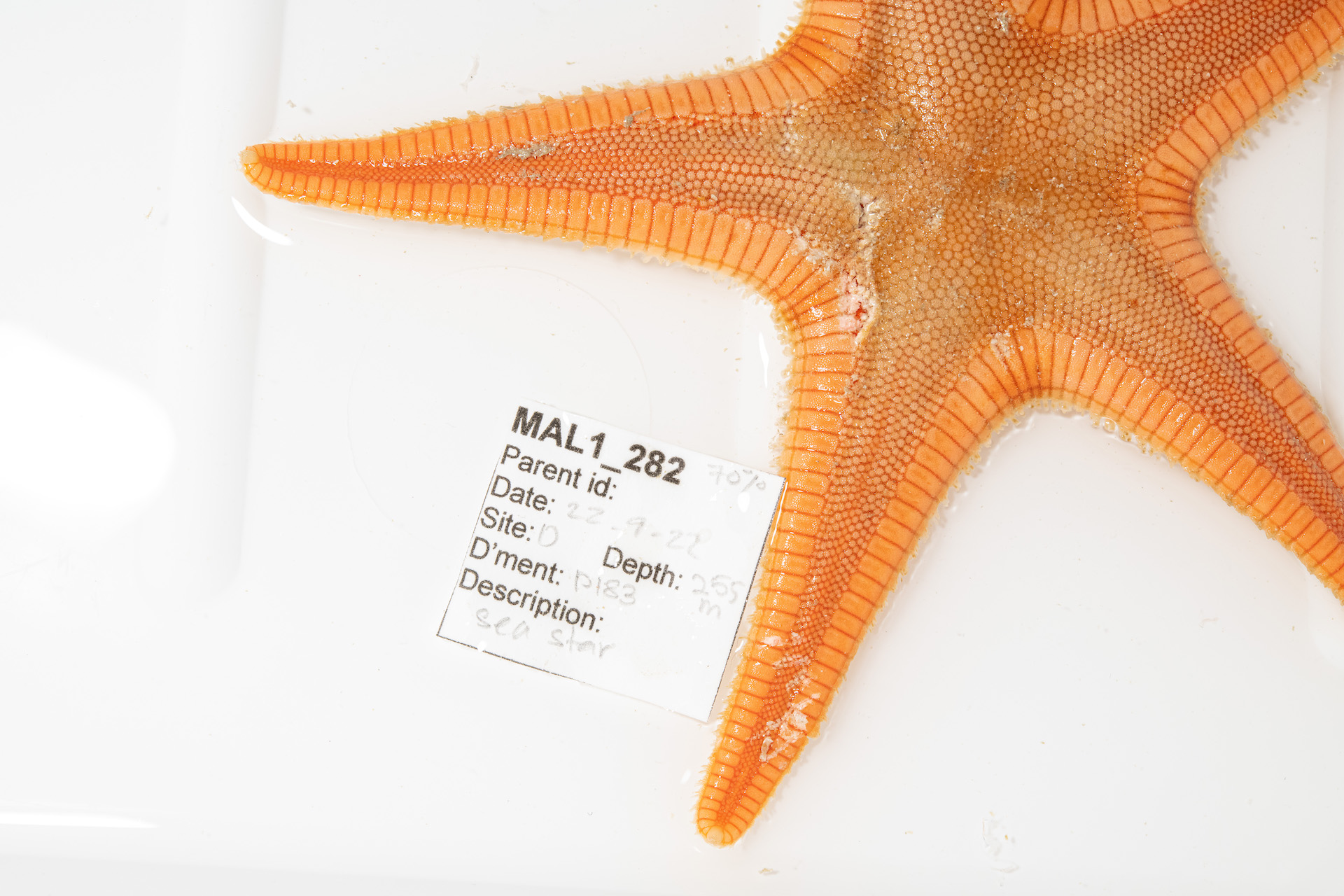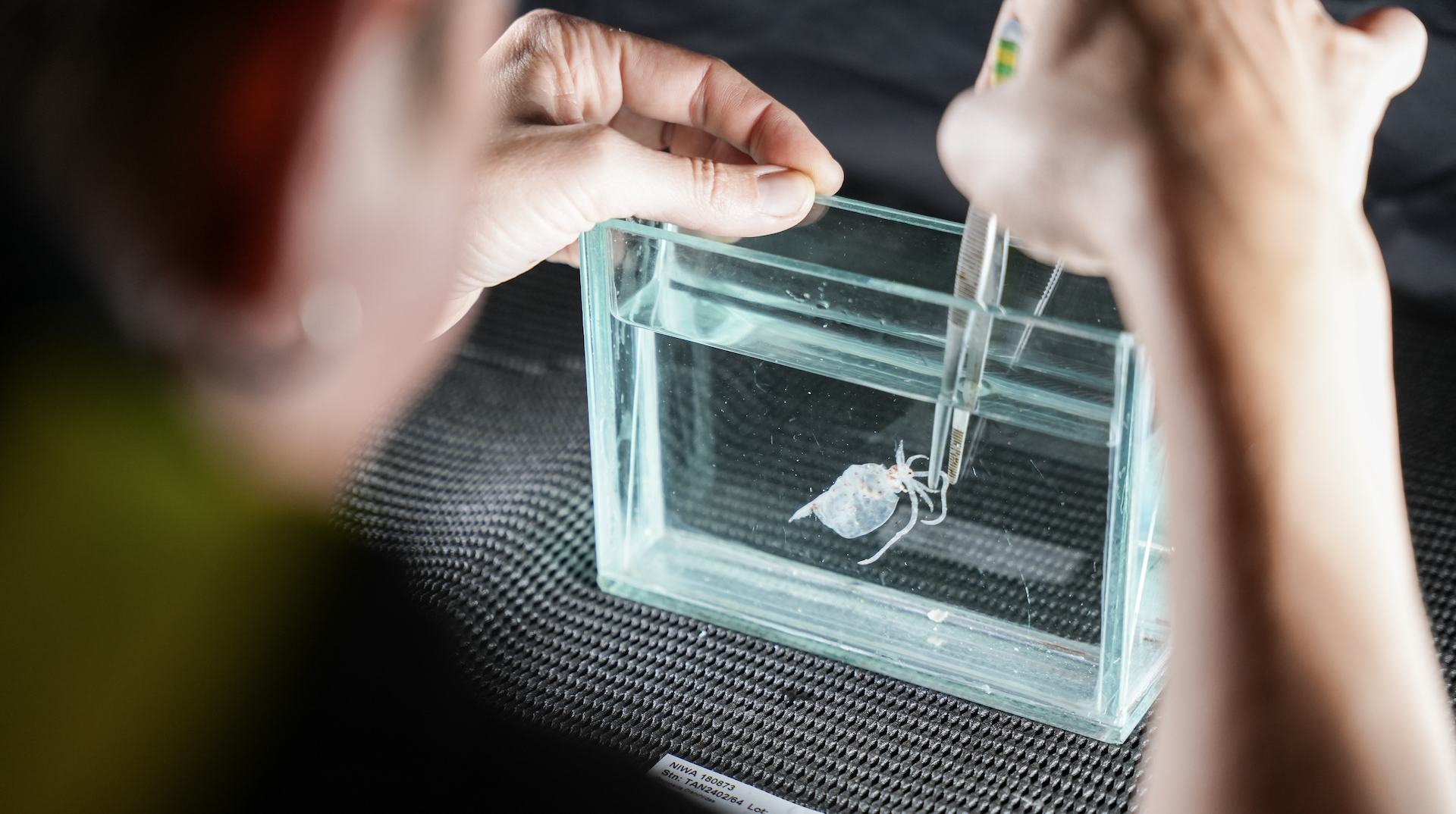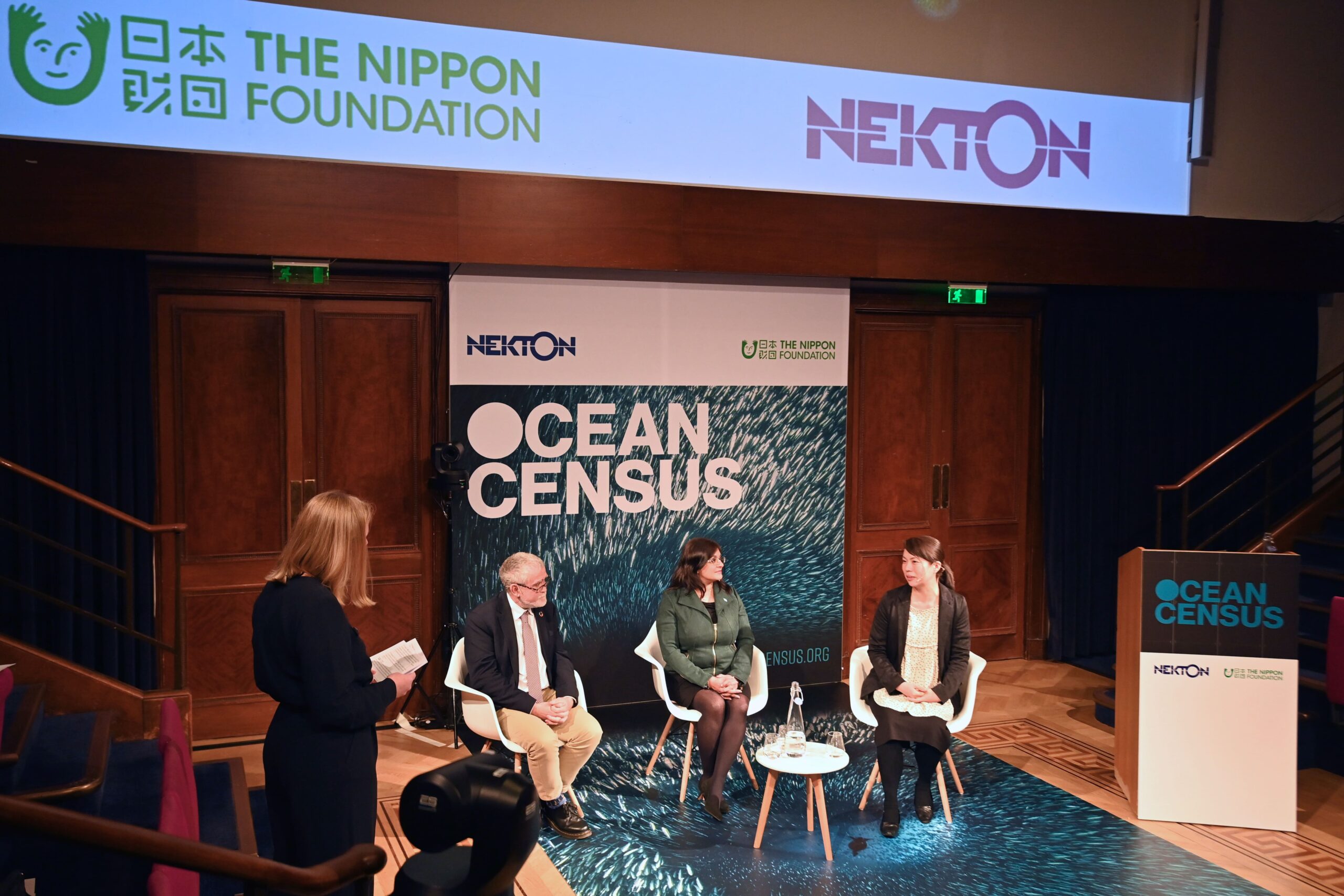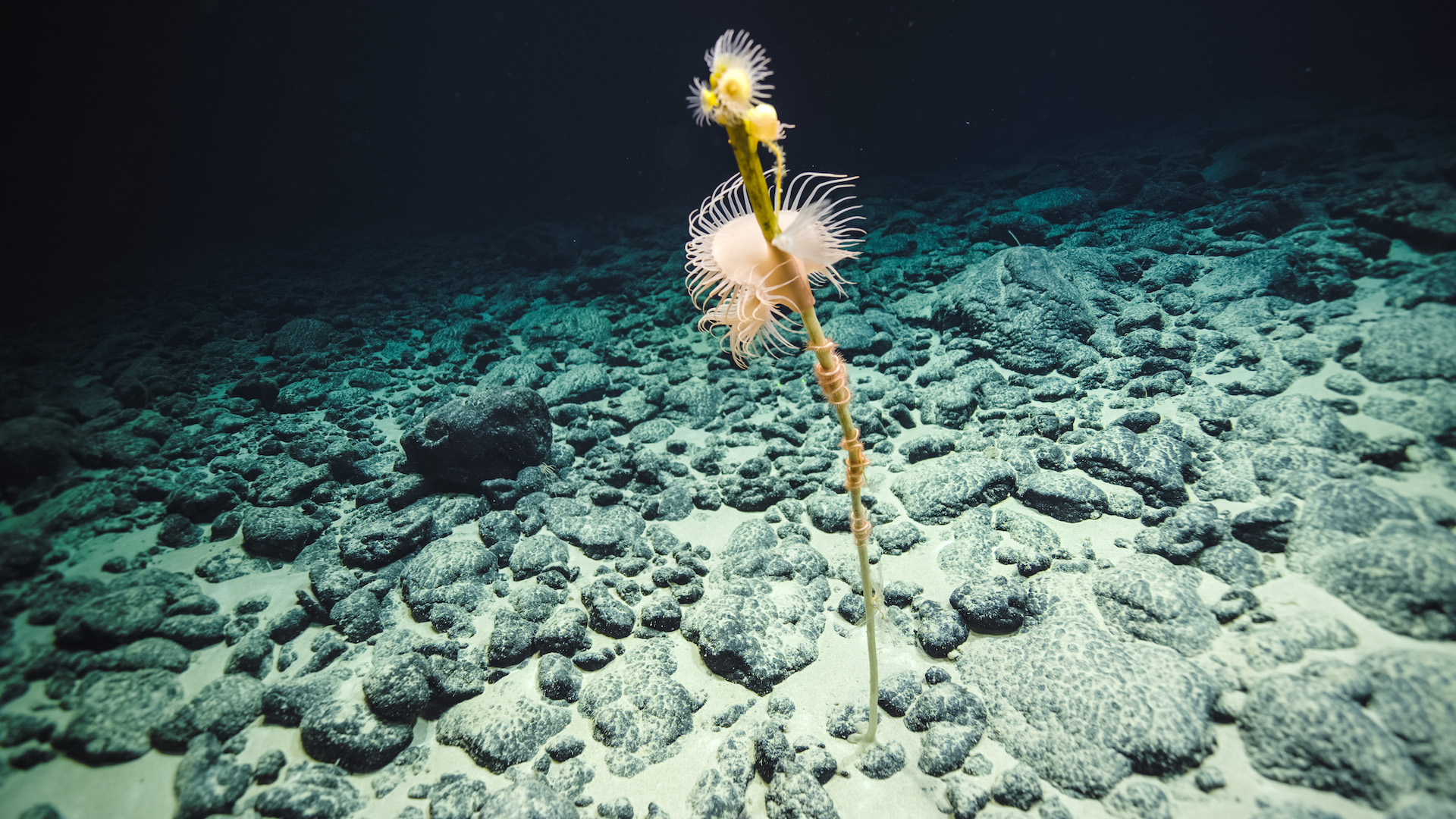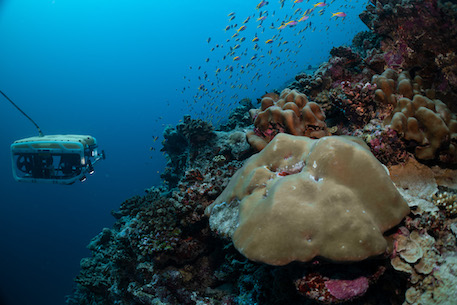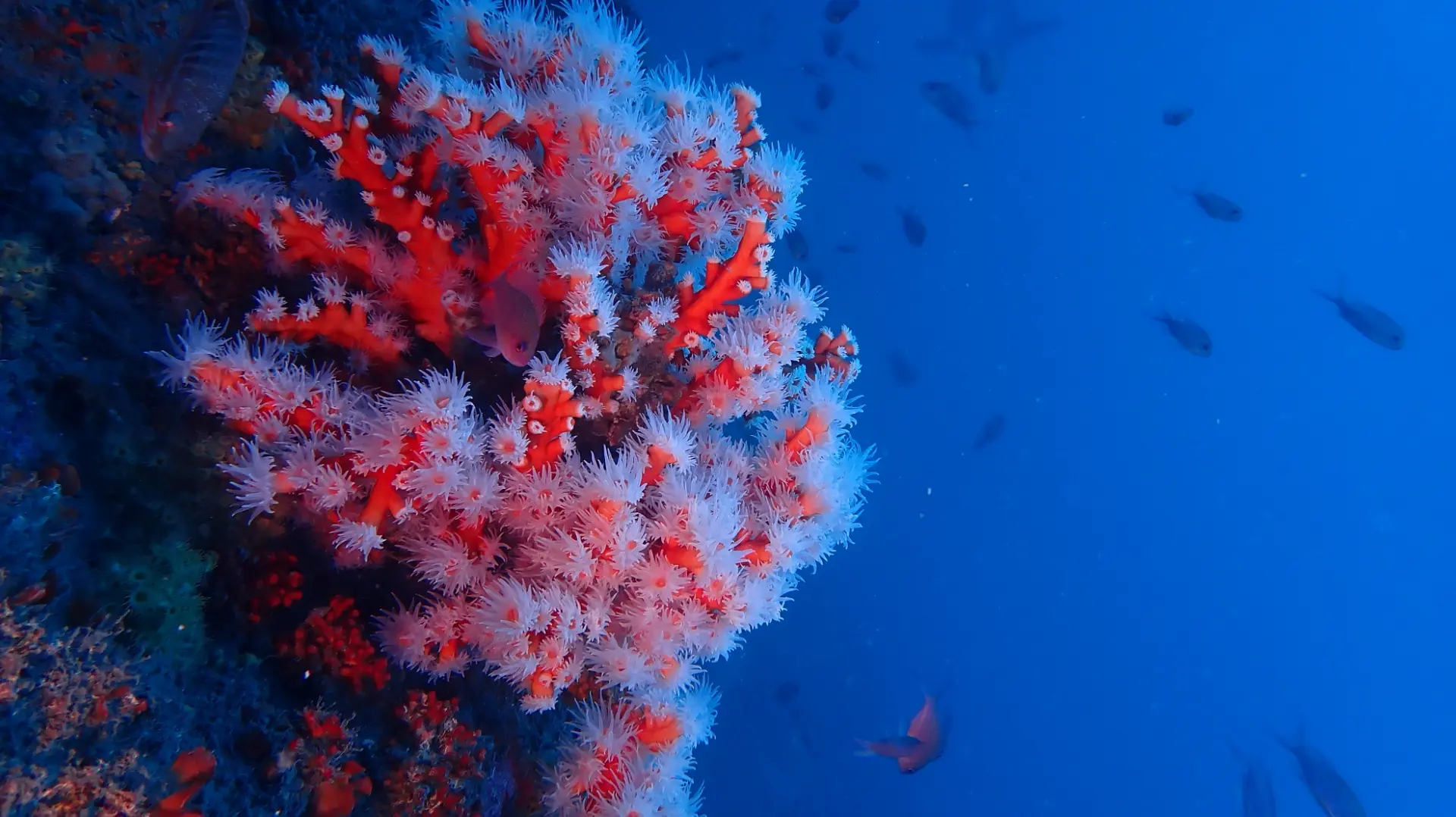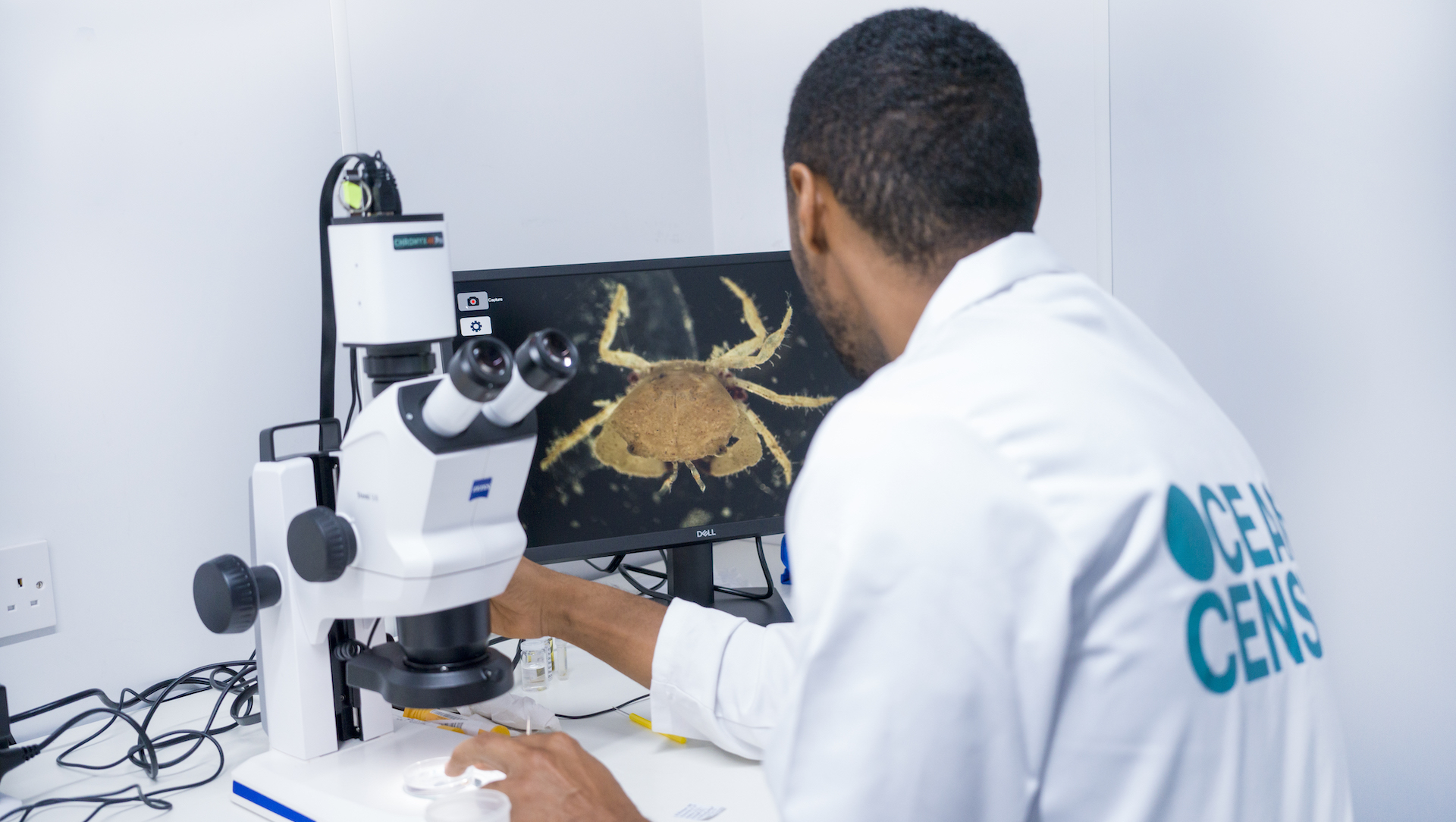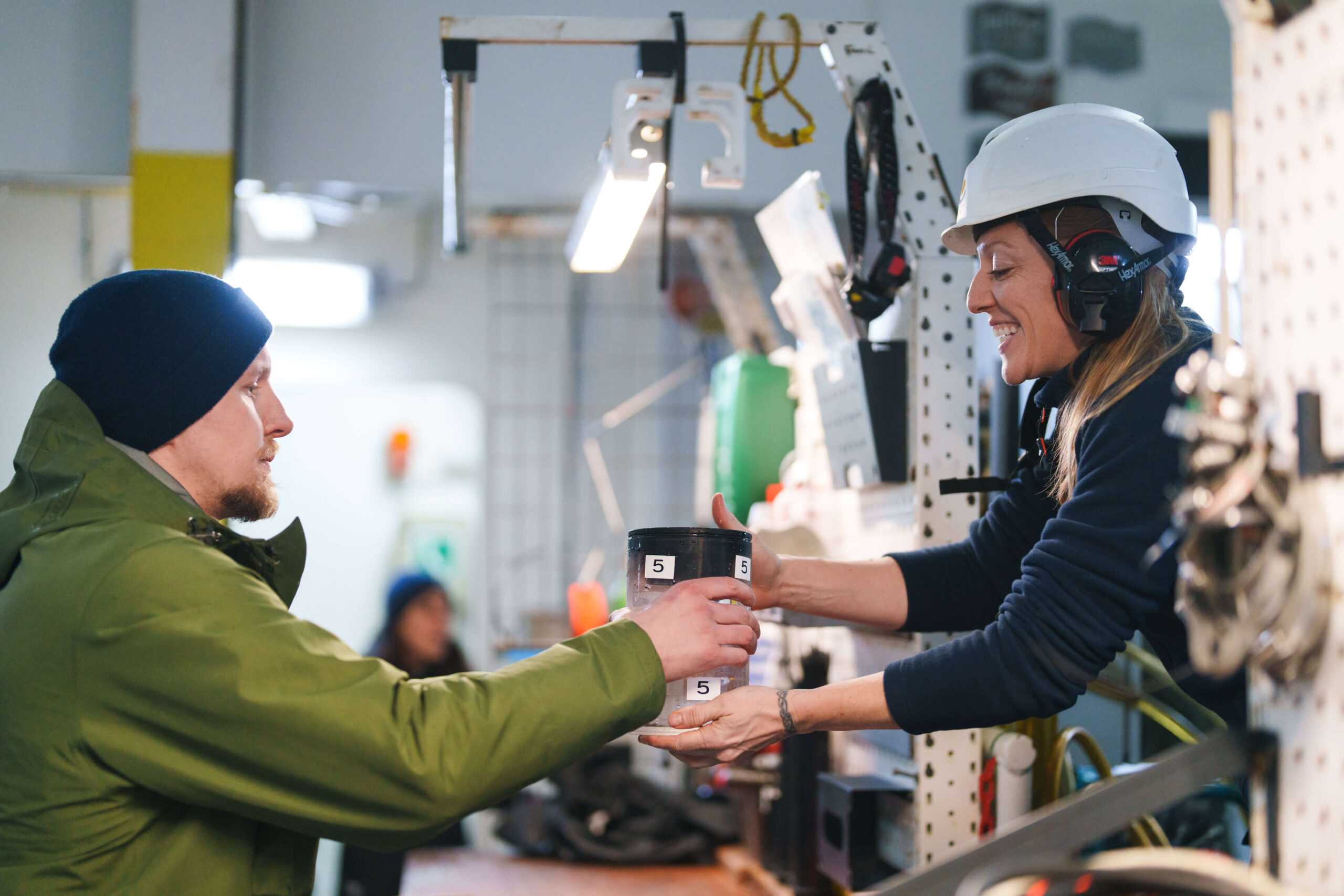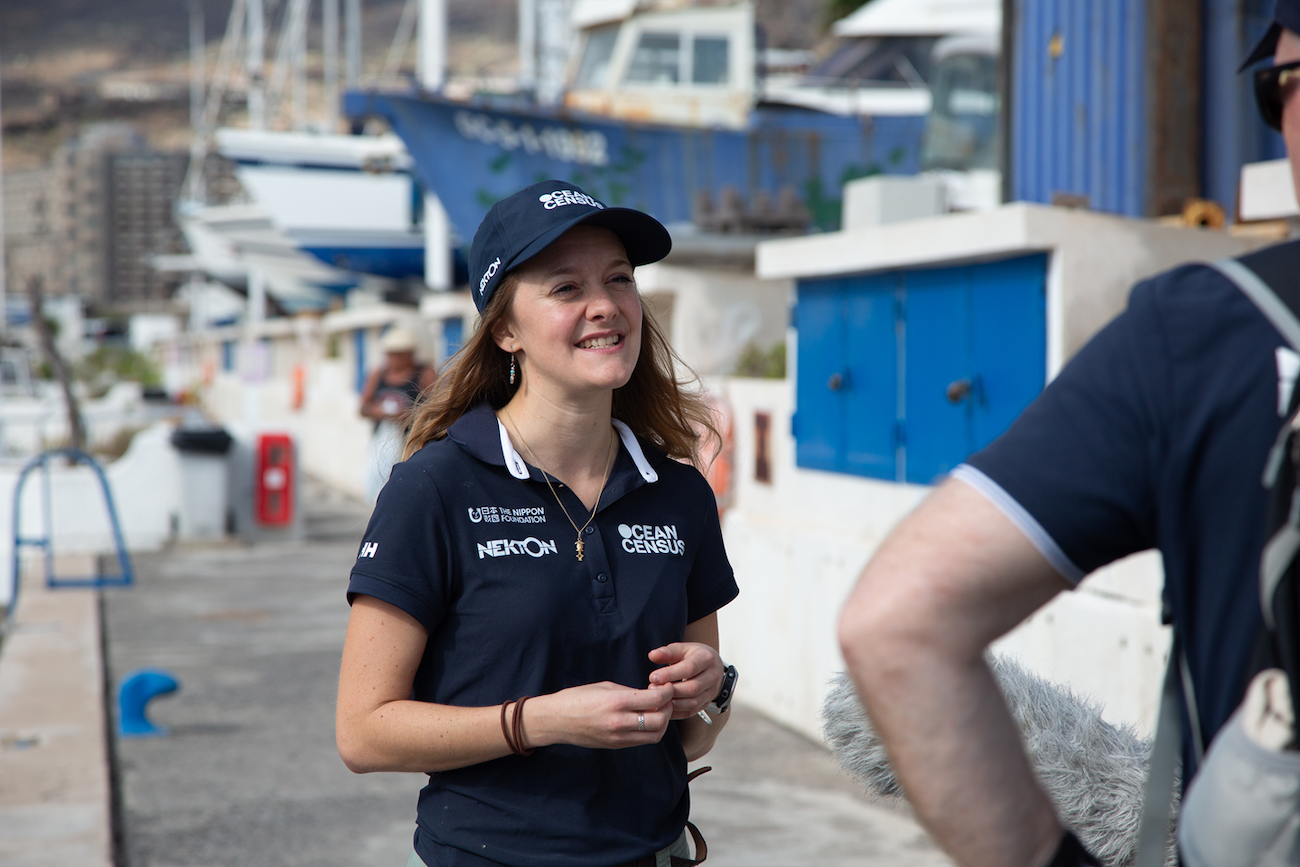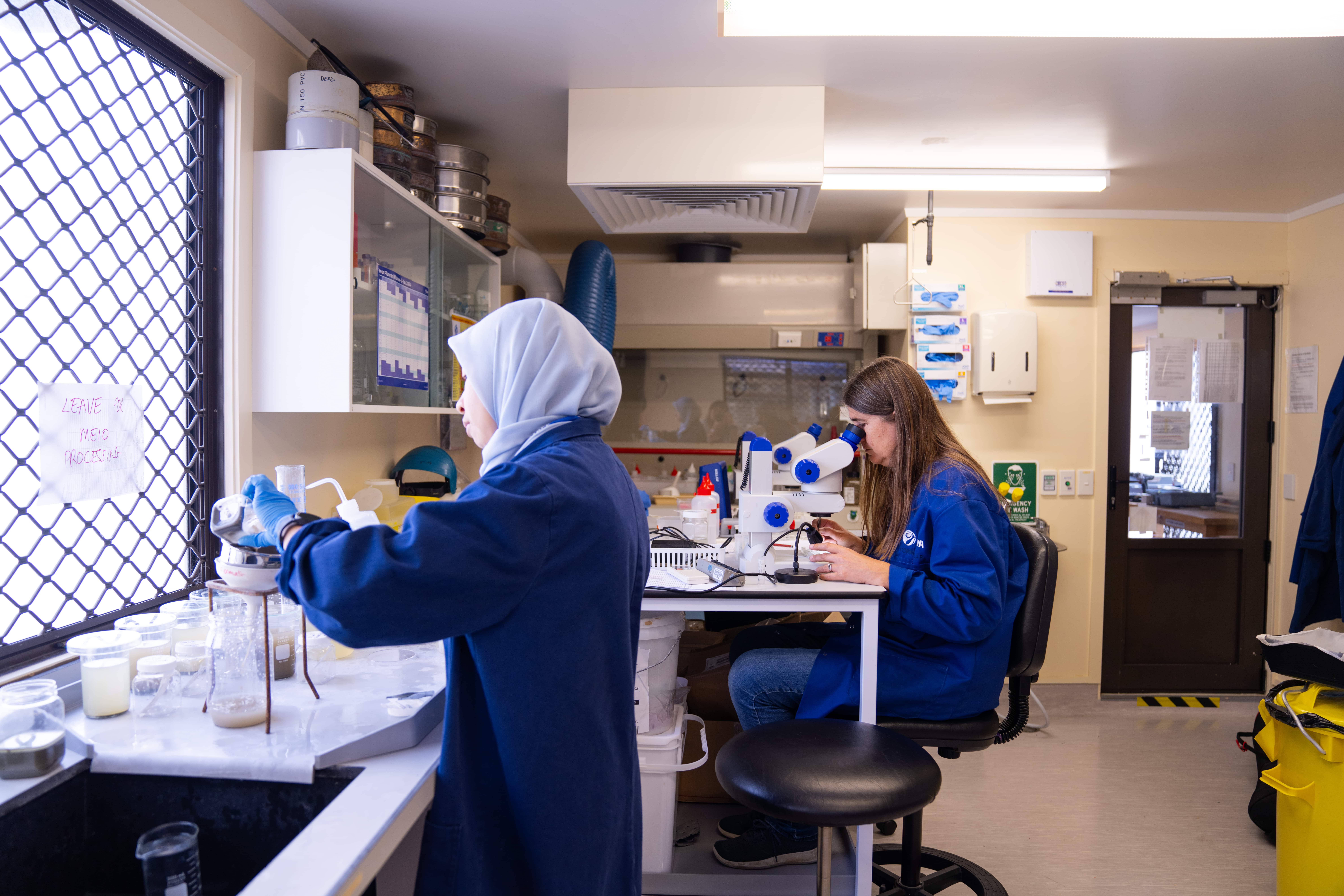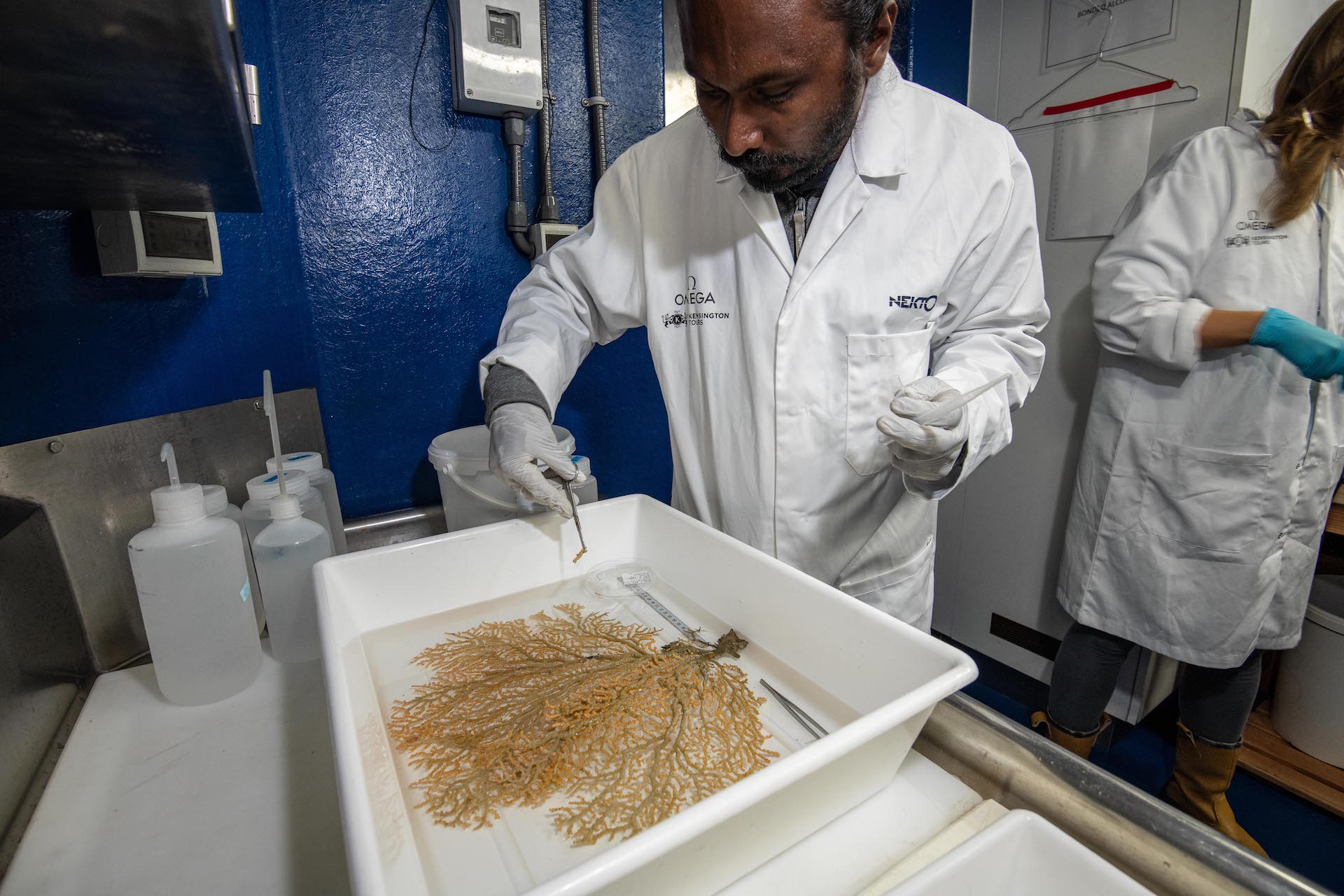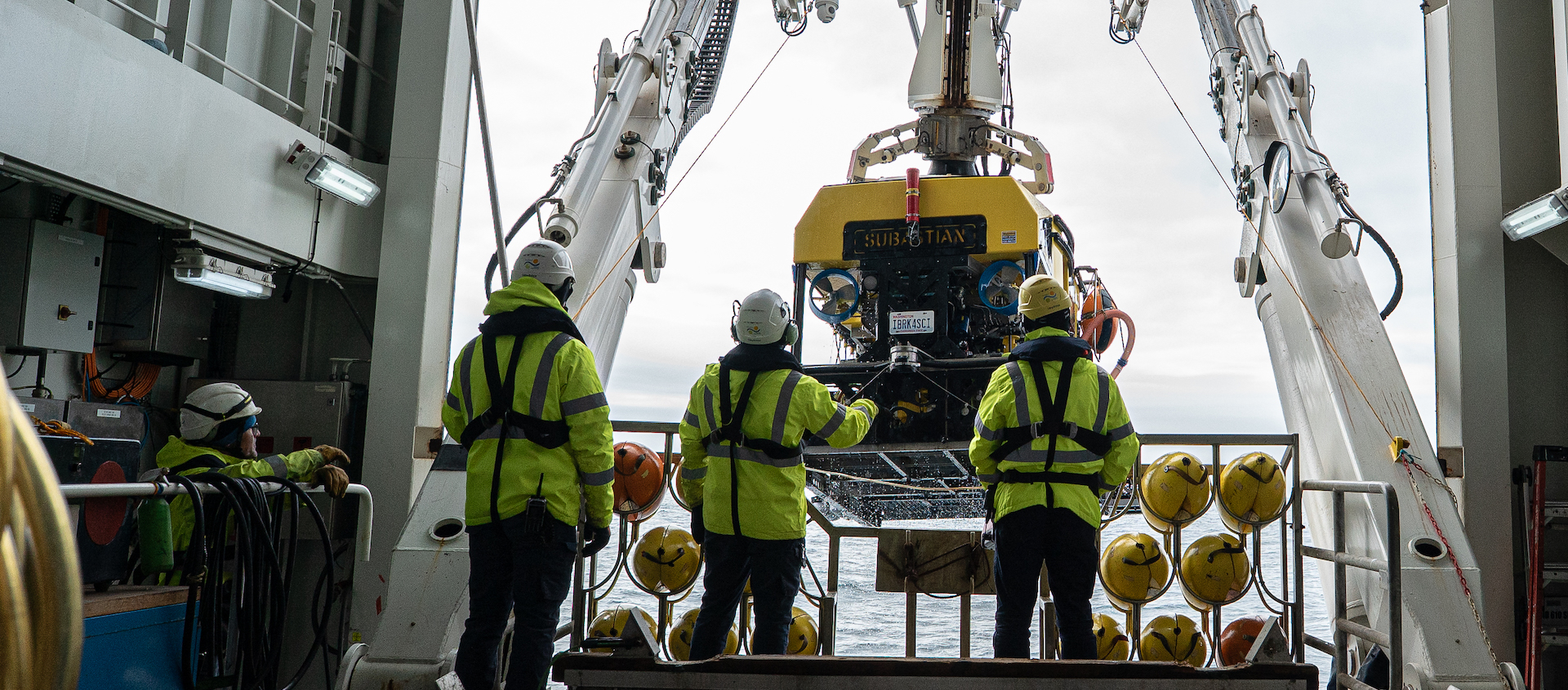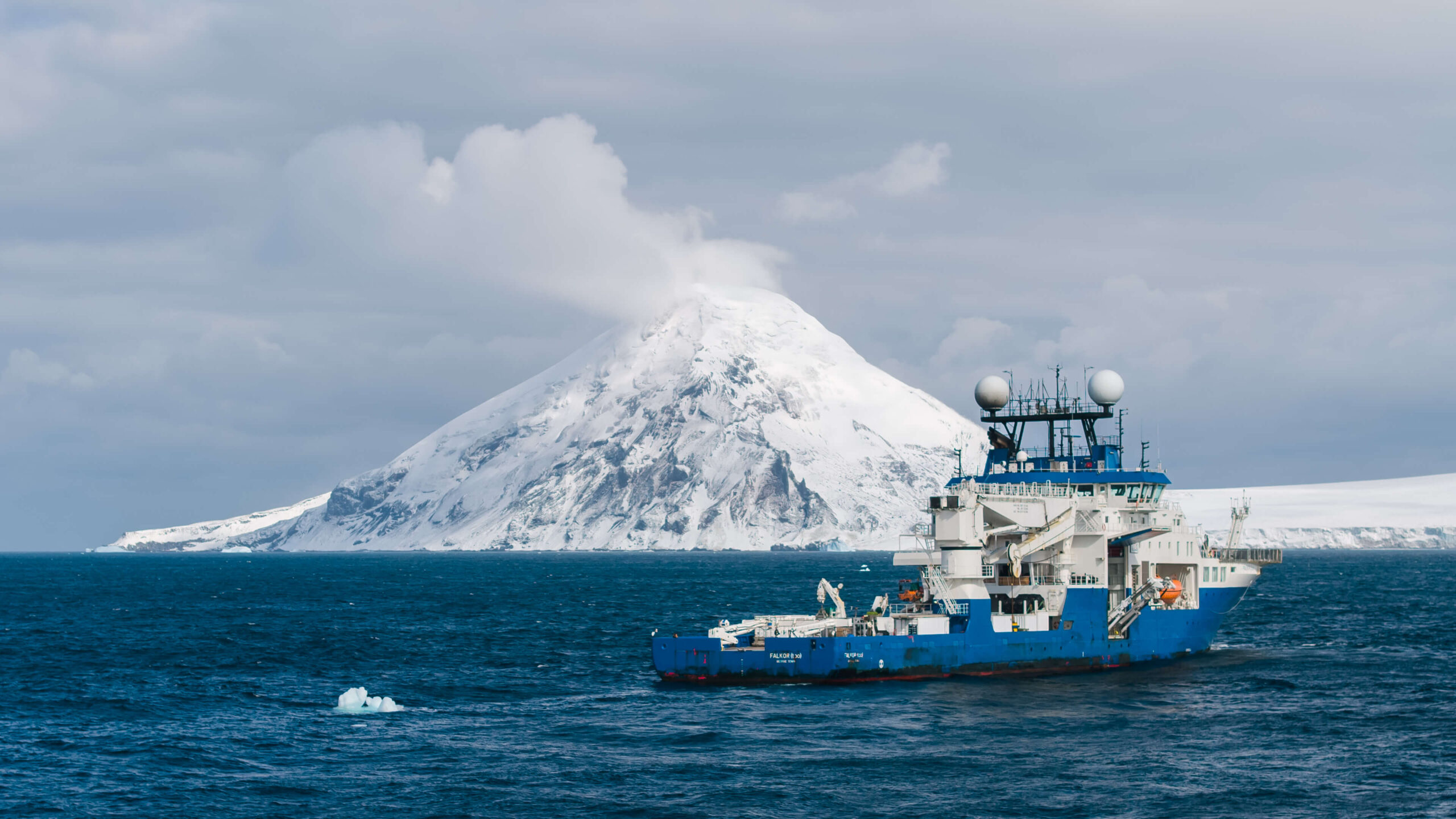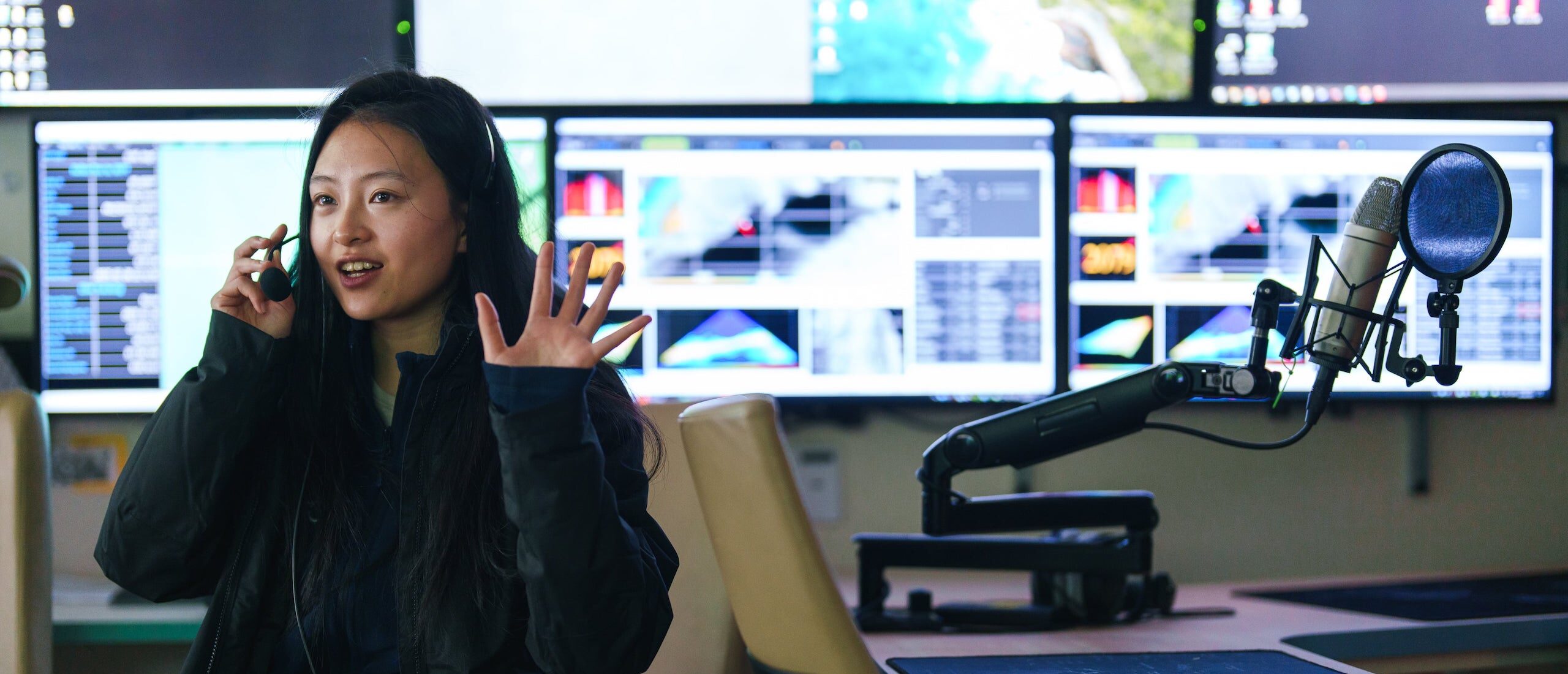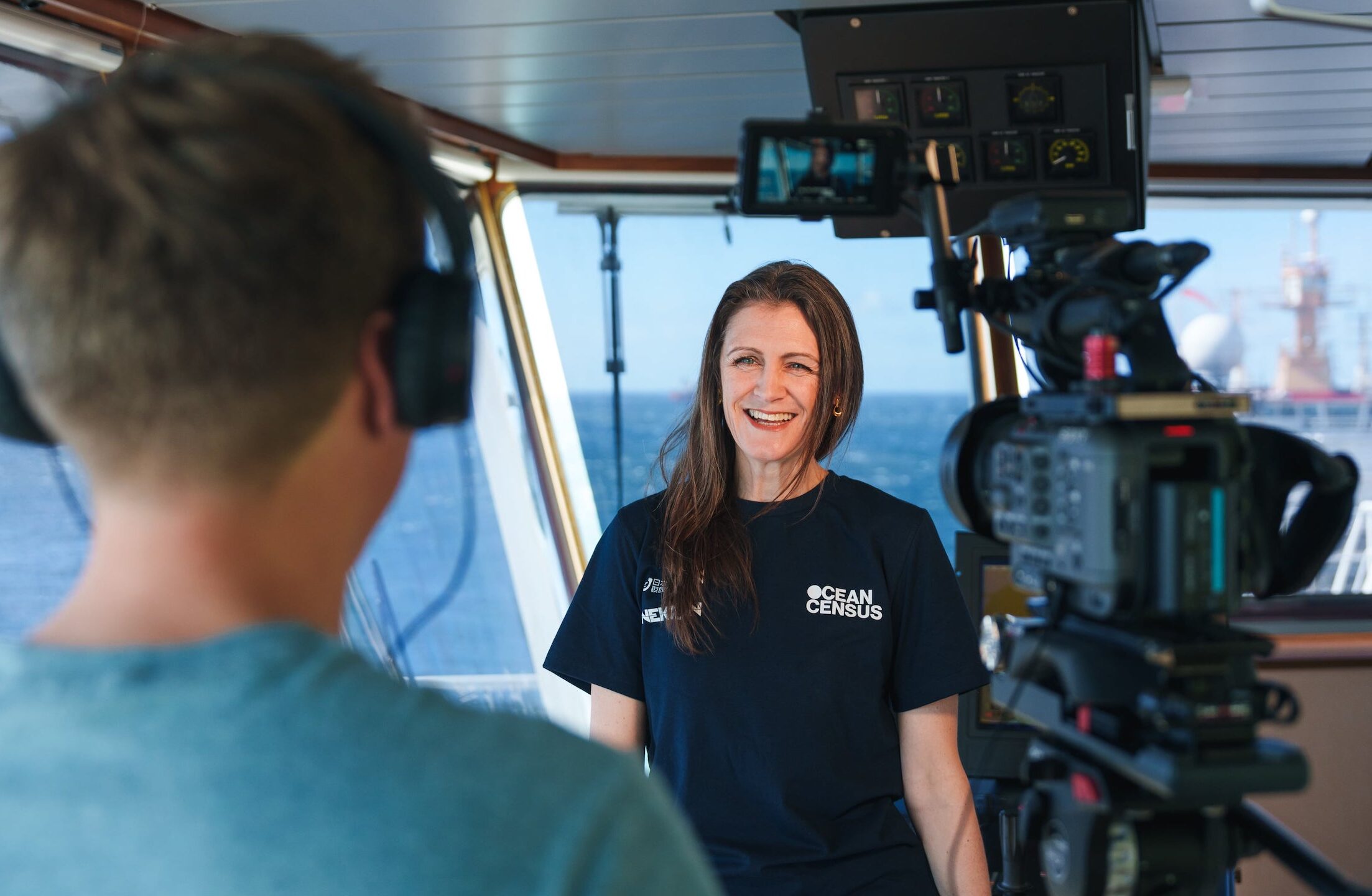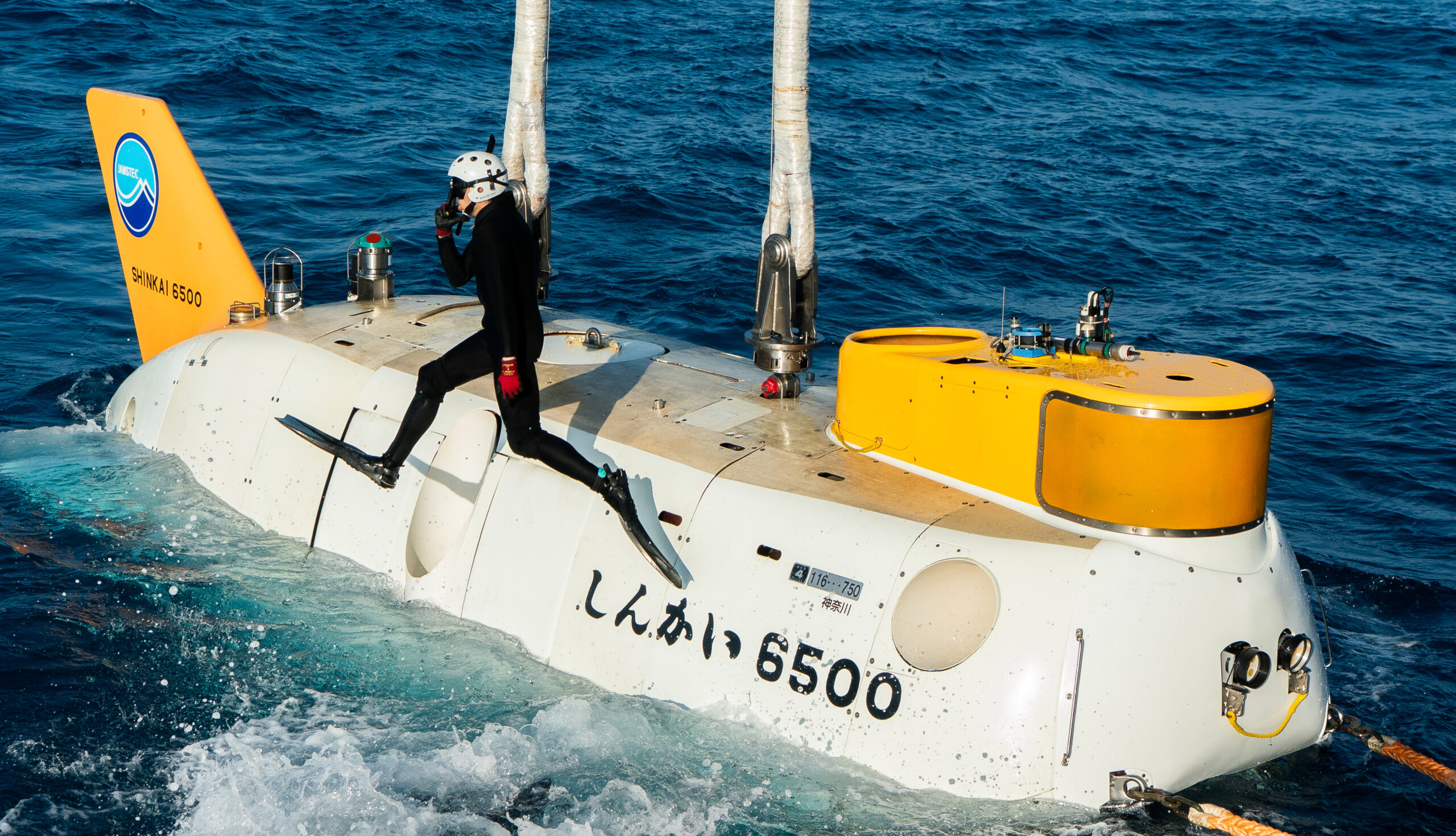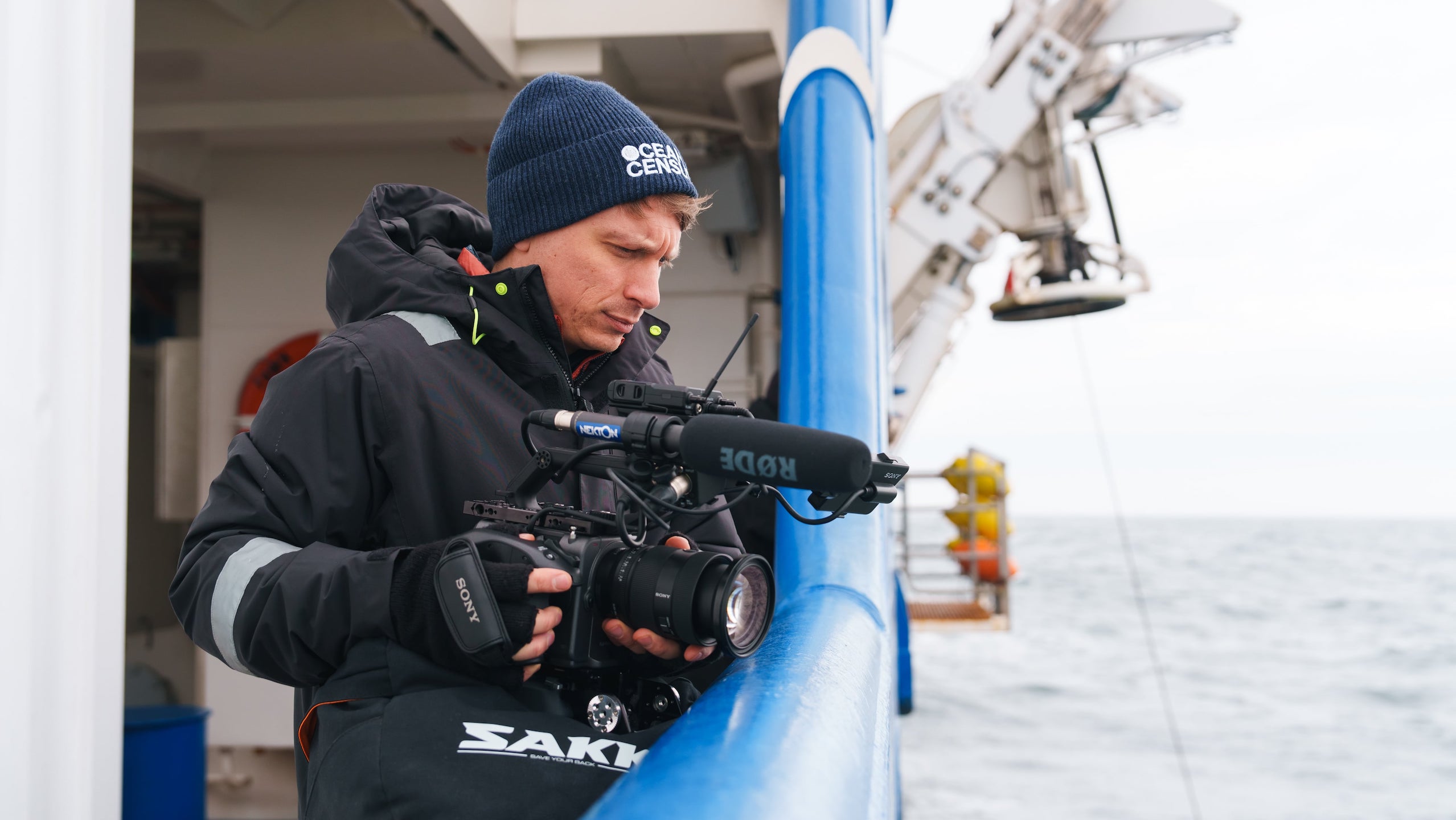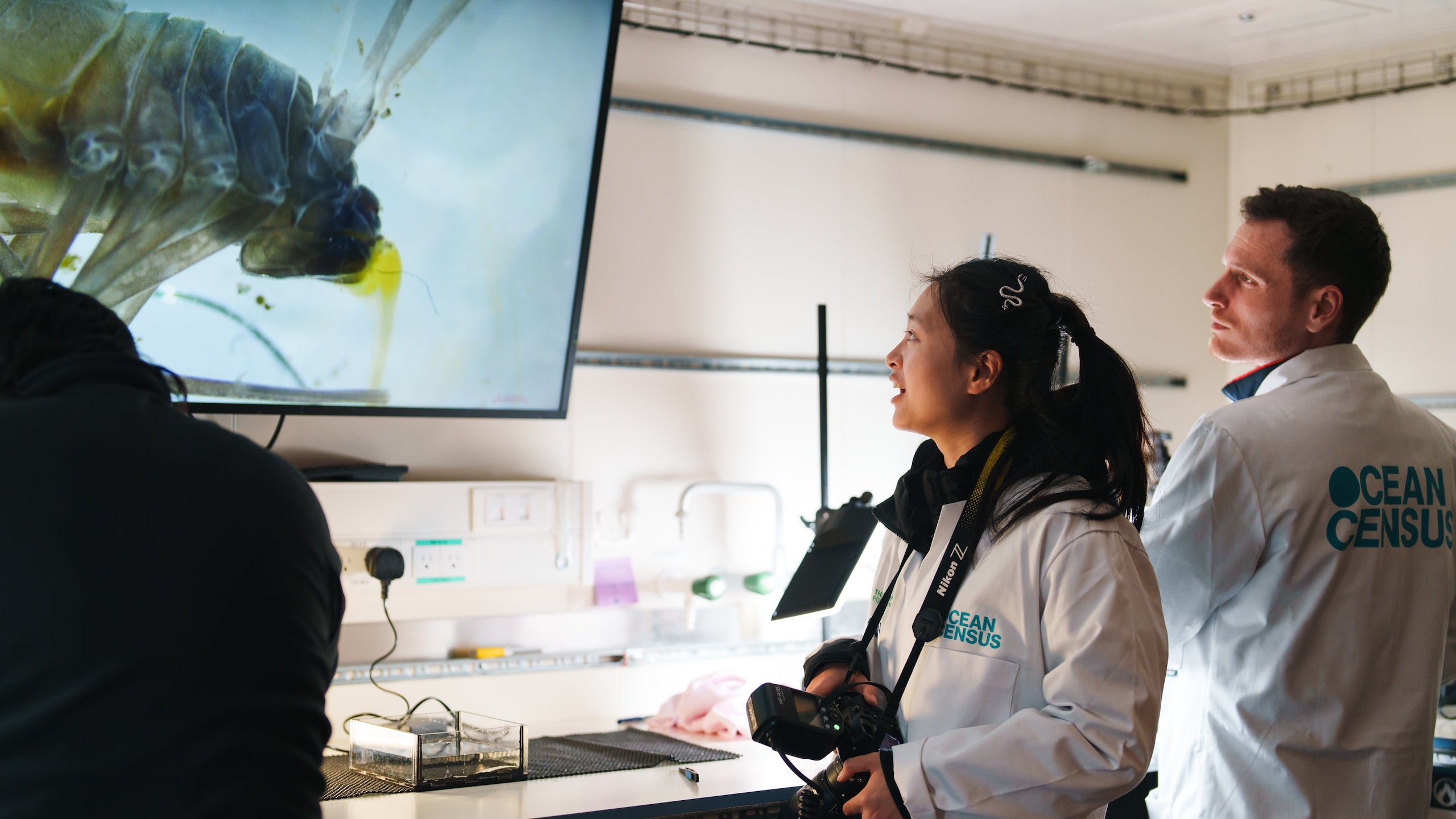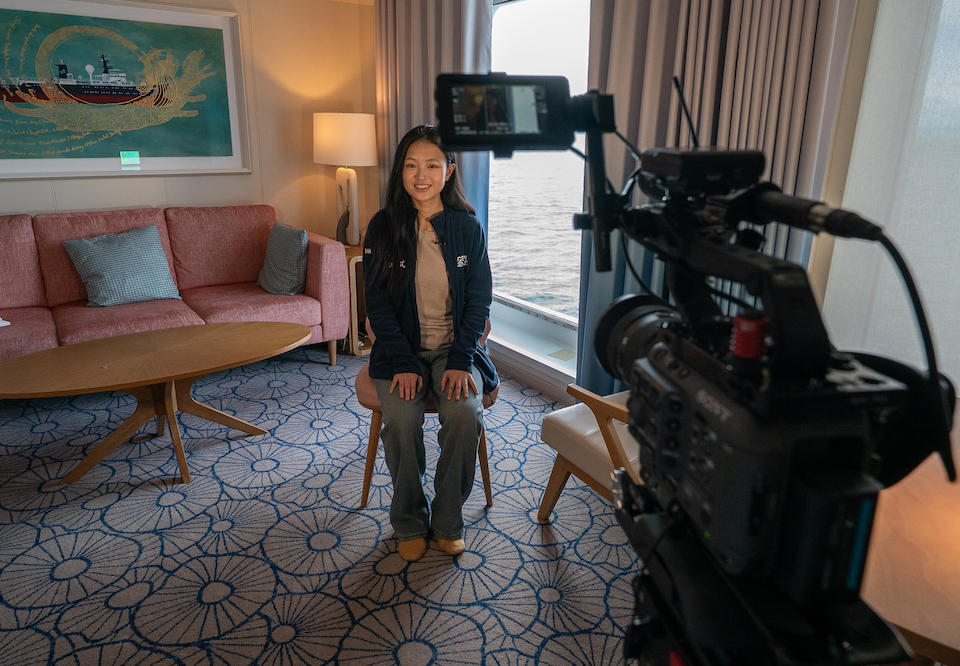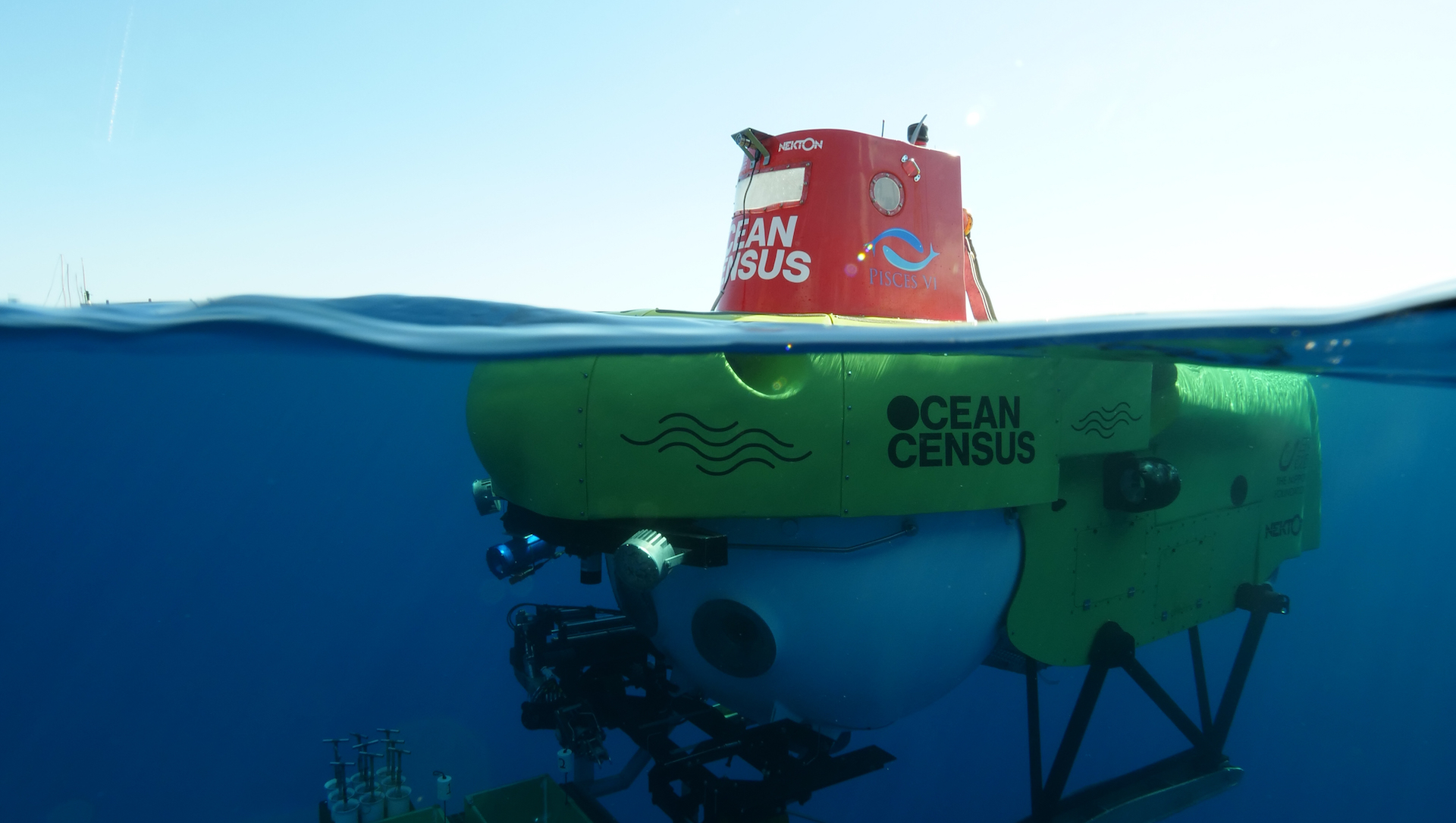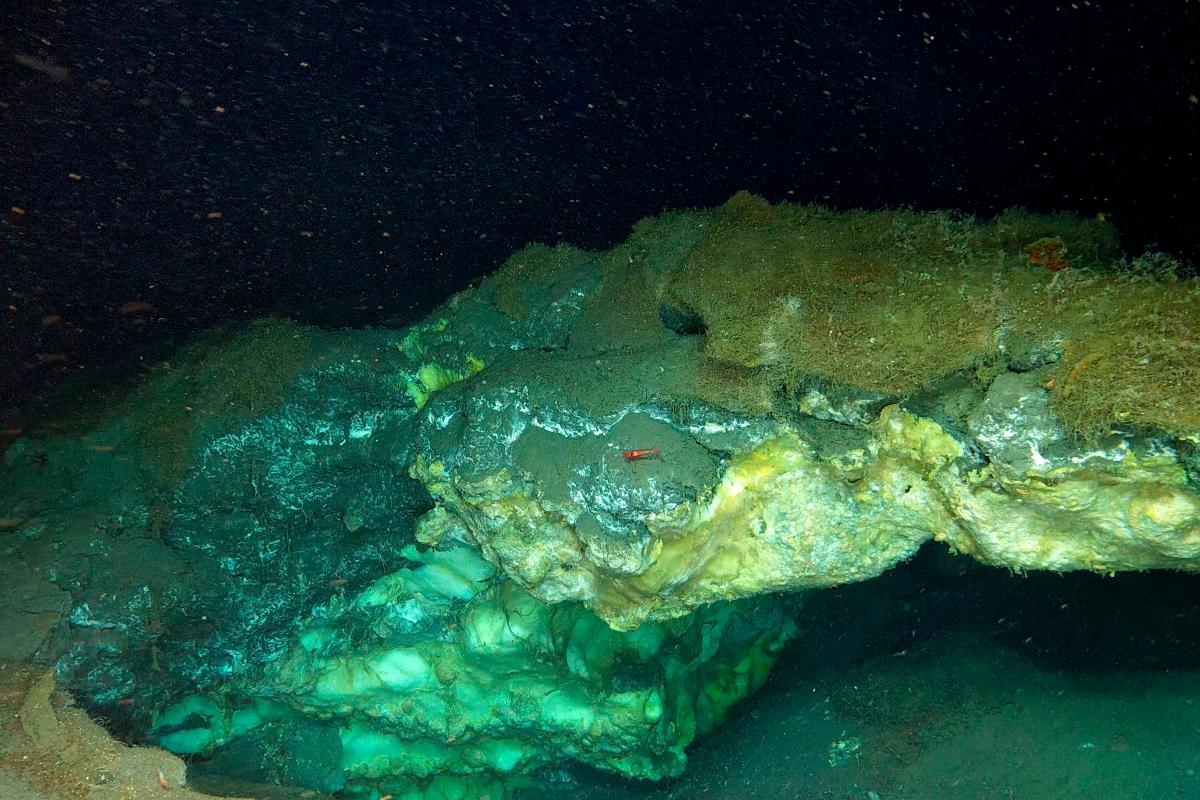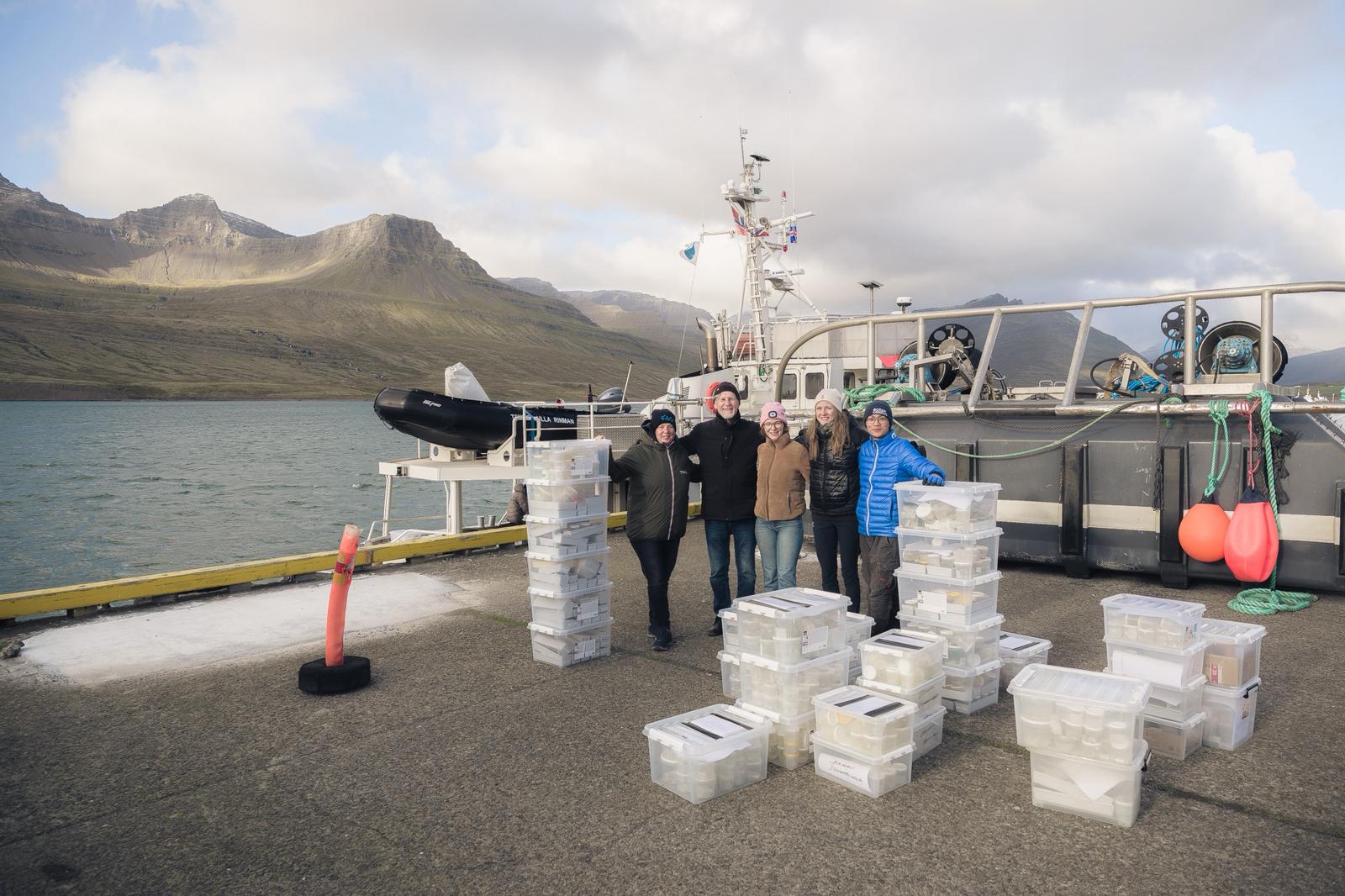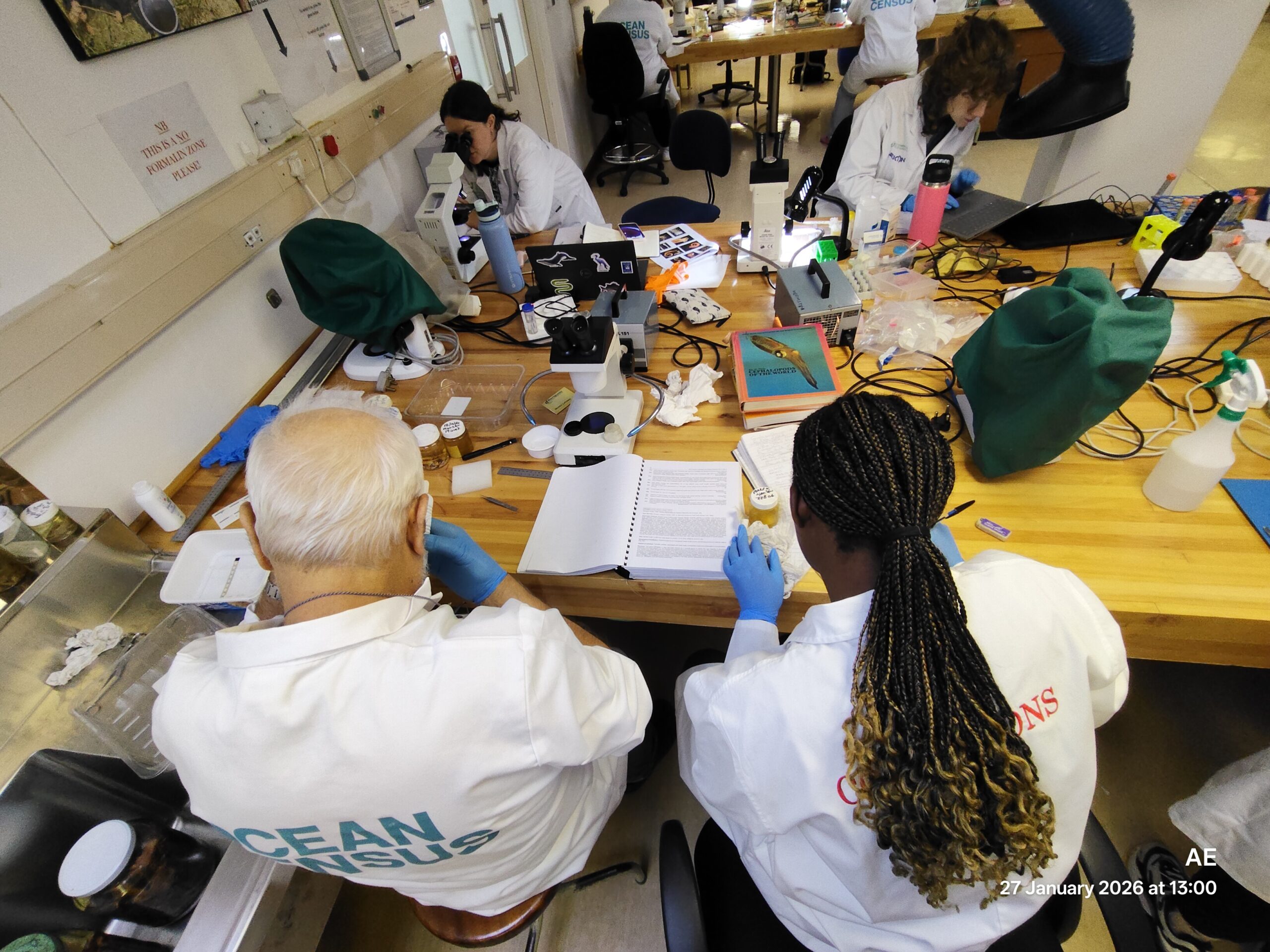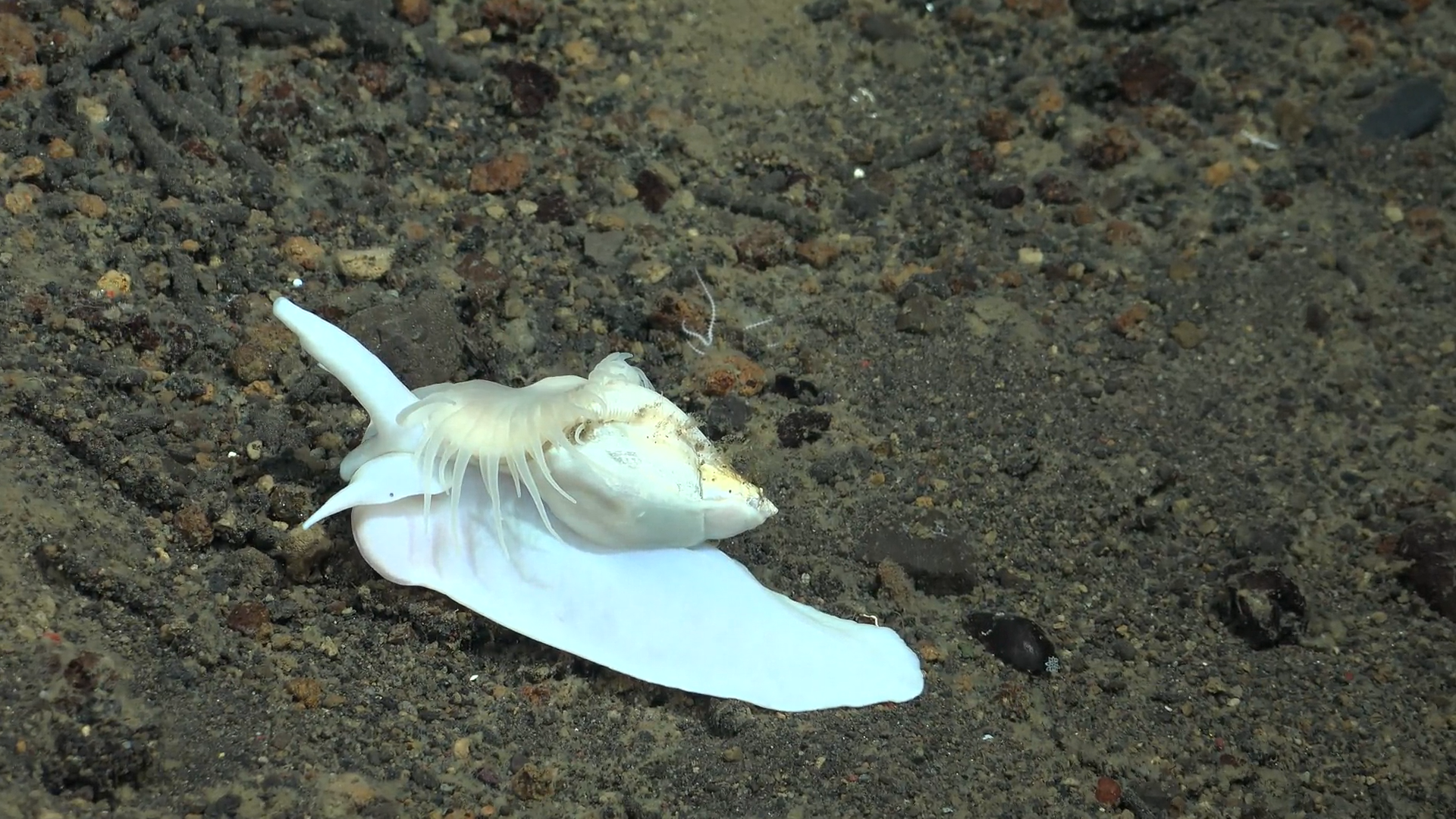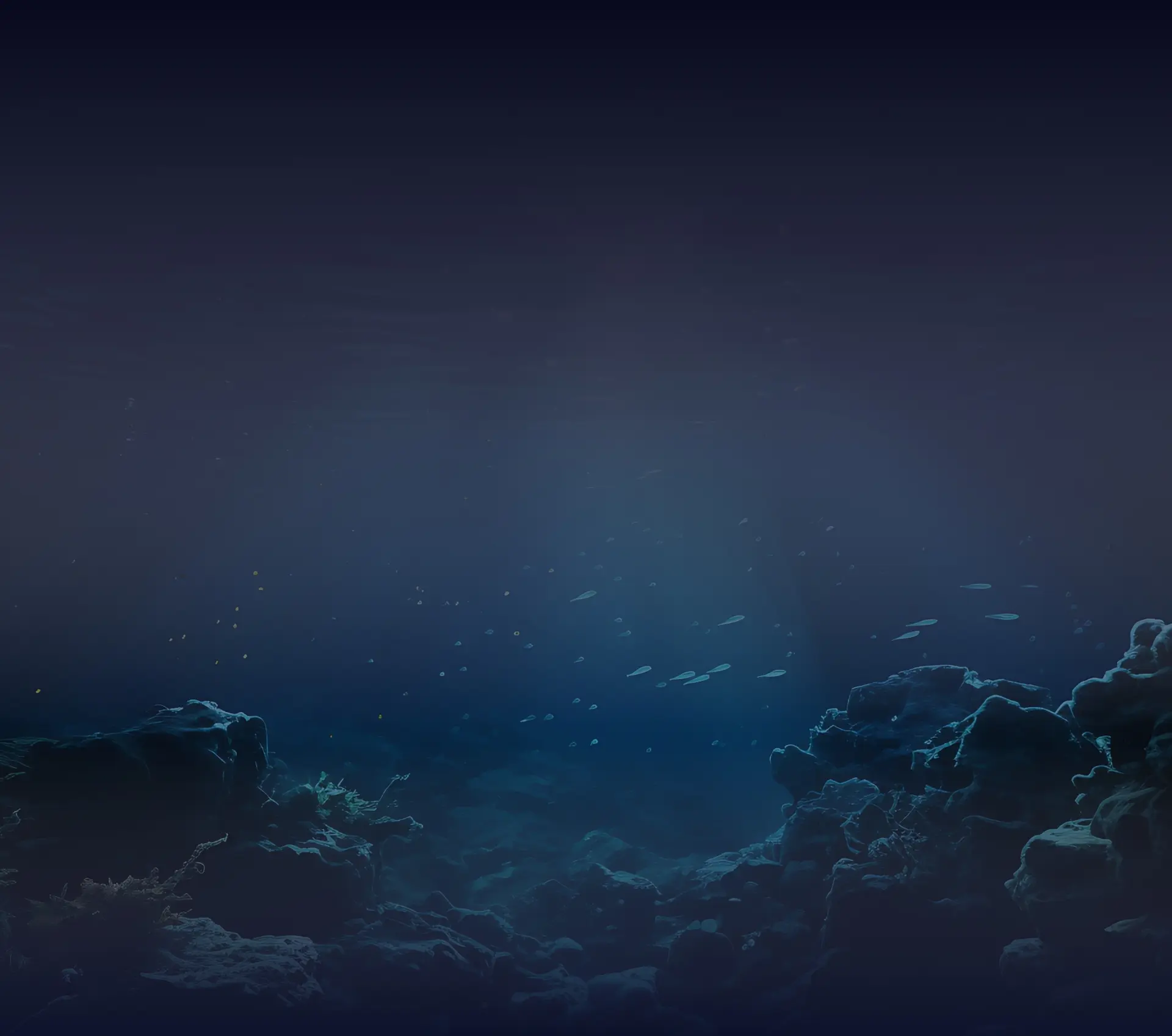
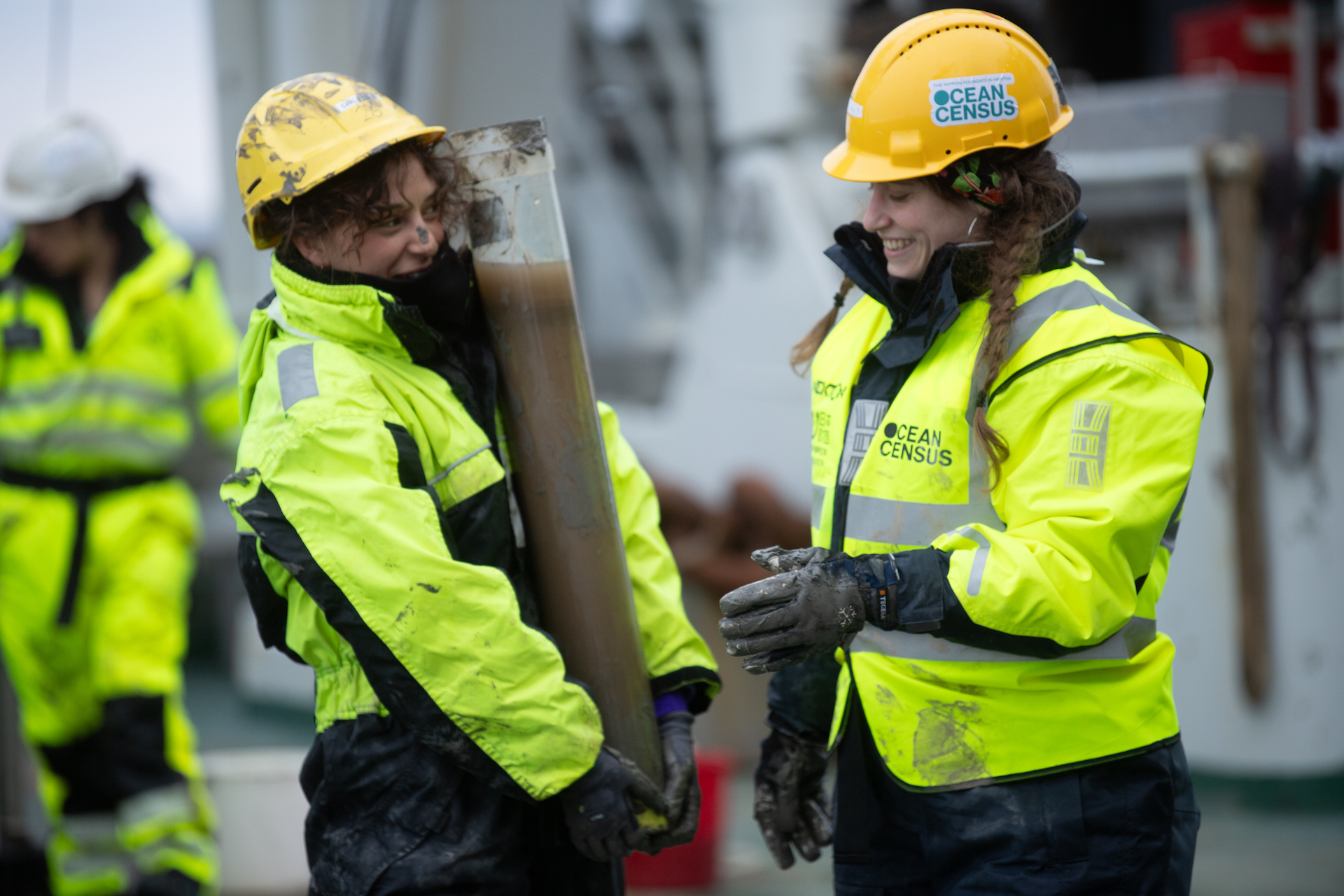
Meet the Ocean Census Arctic Taxonomic Workshop Participant Scientists
Arctic Deep
Building on the success of the 2023 AKMA3 expedition, led by UiT, the 2024 Ocean Census Arctic Deep expedition focused on sampling deep-sea habitats at depths of over 3,500 metres, exploring regions like the Knipovich Ridge and Jøtul vent field in search of new marine species. This expedition was a collaborative effort between UiT, REV Ocean, and The Arctic University Museum of Tromsø.
To accelerate the identification and classification of the specimens collected during these expeditions, UiT hosted a species discovery workshop. The workshop brought together taxonomists from the Ocean Census Science Network, including participants from the Arctic Deep expedition, to conduct detailed taxonomic work on the collection. The specimens, once processed and labeled, will be curated by the Arctic University Museum of Tromsø. This event represents a vital step forward in cataloging the Arctic’s rich and largely unexplored biodiversity.
Take a look below at our brilliant team of participant scientists who delved into the samples taken from these exciting expeditions.
Marine Biologist
Dacio Correa Bethencourt: Fundacion Museo del Mar de Ceuta
Graduate in Biology by the University of Granada and marine biologist at Fundación Museo del Mar de Ceuta. Dacio is currently working as a collection curator, technical diver and researcher, with a special focus in ecology and morphology in different research lines, with Anthozoa as the main subject of study.
He has worked on national and international scientific projects related to the study of marine environment and its biodiversity, for better protection and management. He is looking forward to participating in this workshop, collaborating with other scientist and gathering knowledge and passion on discovering the Arctic treasures.

Researcher
Dr Patricia Esquette Garrote: Universidade de Aveiro
Patricia is a researcher at the University of Aveiro. Her research interests include taxonomy, ecology, biogeography, and the natural history of various marine crustaceans, including Tanaidacea, Isopoda, and Amphipoda. She has described 25 marine taxa, and serves as taxonomic editor for the World Register of Marine Species.
She is also interested in studying the human impacts on the deep sea, and currently focuses on the impacts of deep-sea mining activities on biodiversity. Patricia contributes to scientifically informed marine policy. She co-leads the Minerals Working Group of the Deep Ocean Stewardship Initiative (DOSI) and participates in international negotiations related to the exploitation of mineral resources in the deep sea.

PhD Student
Katharina Kohlenbac: Alfred-Wegener Institut (AWI)
Katharina’s PhD thesis focuses on the diversity and distribution of deep-sea macrofauna in the deep sea of the Arctic Ocean across temporal and spatial scales. She is fascinated by the deep-sea macrofauna that inhabit the seafloor, because of its huge reservoir of unknown species, and how it may respond to environmental changes and other anthropogenic pressures, due to the difficult accessibility of the ice-covered Arctic basins.
The aim of her PhD is to investigate the diversity, distribution, and connectivity of macrofauna in the Arctic Ocean. For this, she will compare Central Arctic macrofauna communities across 3 decades, as well as focusing on the species diversity and distribution ranges of isopods in particular. This will be done by combining classical morphological identification with molecular DNA barcoding to delineate species and their distribution ranges. In addition, habitat models will identify environmental drivers and help to forecast ecological responses in future climate scenarios. Katharina’s PhD is kindly funded by the Hector Fellow Academy for a duration of 3 years starting in October 2024.

Senior Biodiversity Biologist
Dr Katrin Linse: British Antarctic Survey (BAS)
Katrin is a Biodiversity Scientist at the British Antarctic Survey with 25 years of research experience in the biodiversity, phylogeography and evolution of polar and deep-sea marine invertebrates. She has led and participated in over 20 marine expeditions to the Southern Ocean (SO), Arctic, North Atlantic and Red Sea. Through this she has discovered unexpectedly high biodiversity in the abyssal Antarctic Ocean, unknown hydrothermal vents along the East Scotia Ridge (SO), Reykjanes Ridge and Red Sea Rift, as well as methane seeps at South Georgia and the Vestnesa Ridge.
She authored and co-authored habitat descriptions for Antarctic, deep-sea and hydrothermal ecosystems as well as formal species descriptions ranging from gastropods and bivalves to amphipods, barnacles and isopods, and from starfish to sea spiders. The biodiversity data from expeditions Katrin participates in and their application form the basis for marine conservation efforts towards policy measures. To date she has published 158 peer-reviewed publications on marine biodiversity.

PhD student
Jenny Neuhaus: Senckenberg Society for Nature Research
Jenny is a PhD student at the Senckenberg Society for Nature Research. She is studying connectivity patterns in the Atlantic deep-sea with focus on different modes of reproduction and locomotion in barnacles, bivalves and isopods. Furthermore, her background lies within the field of marine taxonomy with a special interest in sea slugs, of which she described a new species during her Master’s at the University of Bergen, Norway.
Since her studies at the University Centre of Svalbard, she has been fascinated by the marine biodiversity of the Arctic Ocean. Jenny is very excited to join the Ocean Census Arctic taxonomy workshop and contribute to the discovery of species in alliance with specialists from across the world.

PhD Candidate
Chander Olson: University of Alabama
Chandler Olson is a PhD Candidate at the University of Alabama in Kevin Kocot’s Lab, where they specialise in the study of mollusks, with a particular focus on Solenogastres. Their dissertation research is centered on the Solenogastres species found around Iceland, utilizing a vast collection of over 2,000 specimens gathered during the IceAGE and IceDIVA cruises from a broad depth range (100 to 5,000 metres).
Using both morphological and molecular techniques Chandler has discovered remarkable biodiversity in this region, identifying over 120 species, most of which are entirely new to science. In his free time Chandler is interested in science communication and has created a website with seashell identification guides of the Eastern United States, along with educational videos about biodiversity.

ECR scientist
Ander Congil Ross: Fundacion Museo del Mar de Ceuta
Ander graduated in Biology (BSc) and Environmental Sciences (BSc) at the University of Girona and currently work for the Fundación Museo del Mar de Ceuta, specialising in marine biology and biodiversity management, as well as Geographic Information Systems (GIS) and underwater photography. He has worked on several national and international scientific projects related to the study of the marine environment and the increase of knowledge about its biodiversity, as well as its protection and management.
Ander and two of his friends were the first to bring the Fridays for Future movement to Spain, inspiring other young people to join the movement and appearing in Mya-Rose Craig’s book “We have a Dream” as one of the 30 Young, Indigenous and People of Colour Protecting the Planet.

Science Coordinator/PhD student
Alfredo Rosales Ruiz: Fundacion Museo del Mar de Ceuta
Alfredo graduated in Biology at the University of Granada. He is now is a PhD student in Genetics, and a researcher at Fundación Museo del Mar de Ceuta. He is interested in marine genetics, ecology, and exploration. As a scientific and technical diver, he studies the ecological and morphological patterns he sees underwater by applying molecular techniques.
His principle focus in his research is on Anthozoa. Alfredo hopes to understand these species better, their genomic nature, natural history, and ecology, as a way to protect them and the ecosystems they build. Alfredo was a part of Ocean Census Macaronesia and Arctic Deep expeditions and is excited for this new adventure – unveiling the secrets of the samples collected during the Arctic cruise.

Postdoctoral Fellow
Dr Pamela Ruth Rivadeneira: Institute of Marine and Coastal Research, Mar del Plata, CONICET
Pamela is from Argentina. Her research focusses on studying the diversity and reproduction of deep-sea starfish. She has participated in several expeditions in the South Atlantic, primarily working with samples from a submarine canyon.
Describing a new genus and some species has been part of her work. She participated in the biodiversity survey in the Namuncurá – Banco Burdwood marine protected area. In recent years, she has been involved in ecological projects, and has also worked as a professor at the University of Mar del Plata.

PhD student
Maximillian Schrade: University of Oulu
Max is currently a doctoral researcher at the University of Oulu, Finland. He specialises in the molecular assessment of biodiversity patterns in riverine and marine environments. While his background originally lies in alpine ecology, he is interested in a variety of fields – deep-sea ecology being one of them.
His specific expertise for this workshop lies in understanding the macrozoobenthos of the bathyal and abyssal zones.
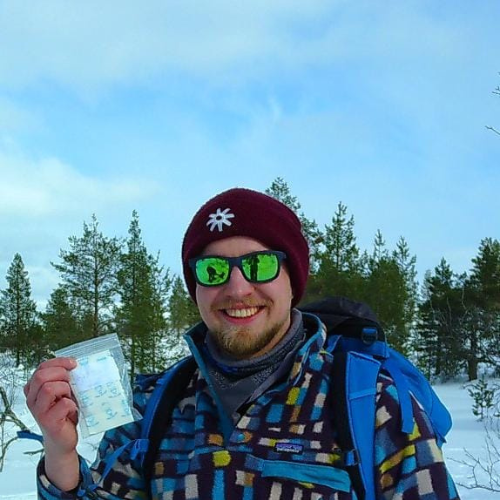
Researcher & Technician
Carolin Uhlir: Alfred-Wegener Institut (AWI)
Since the start of Carolin’s research career in 2015, she has joined six research cruises to the Arctic for sampling benthic macrofauna. She graduated in 2020 with a Master’s in Biology at the University of Hamburg. Her thesis focussed on ‘Morphological and molecular diversity of Cumacea (Crustacea; Peracarida) within Northern European Ocean ecoregions’.
Currently, Carolin is a researcher and technician at the Alfred-Wegener-Institute in Bremerhaven, where she is contributing to the FRAM project within the long-term observatory ‘HAUSGARTEN‘, between Svalbard and Greenland. She will soon start her PhD at Senckenberg in Hamburg. Her PhD will highlight the connectivity of abyssal fauna, with a special focus on Cumacea and Pycnogonida (Sea Spiders), along a latitudinal gradient between Iceland and the North Pole.

Scientific Director
Dr Oscar Ocaña Vicente: Fundacion Museo del Mar de Ceuta
Oscar is a scientific naturalist focused on ecological submarine landscapes. He is an expert in marine biological exploration, corals descriptive ecology, biogeography and systematics. Nowadays, he mostly concentrates on the definition of crypto-diversity, showing the increase of the marine biodiversity organisms worldwide.
Oscar has published in more than 100 scientific articles, as well as several books. Oscar sees this workshop as an opportunity to help better the understanding of coral diversity in several marine regions like the Canaries, Caribbean Sea and the Arctic Ocean.

Related News
Join the census
The Ocean Census Alliance unites national and philanthropic marine institutes, museums, and universities, backed by governments, philanthropy, business and civil society partners.
